50 best Apple Watch apps: From health apps to games and everything in between
Here are all the best Apple Watch apps you can get right now
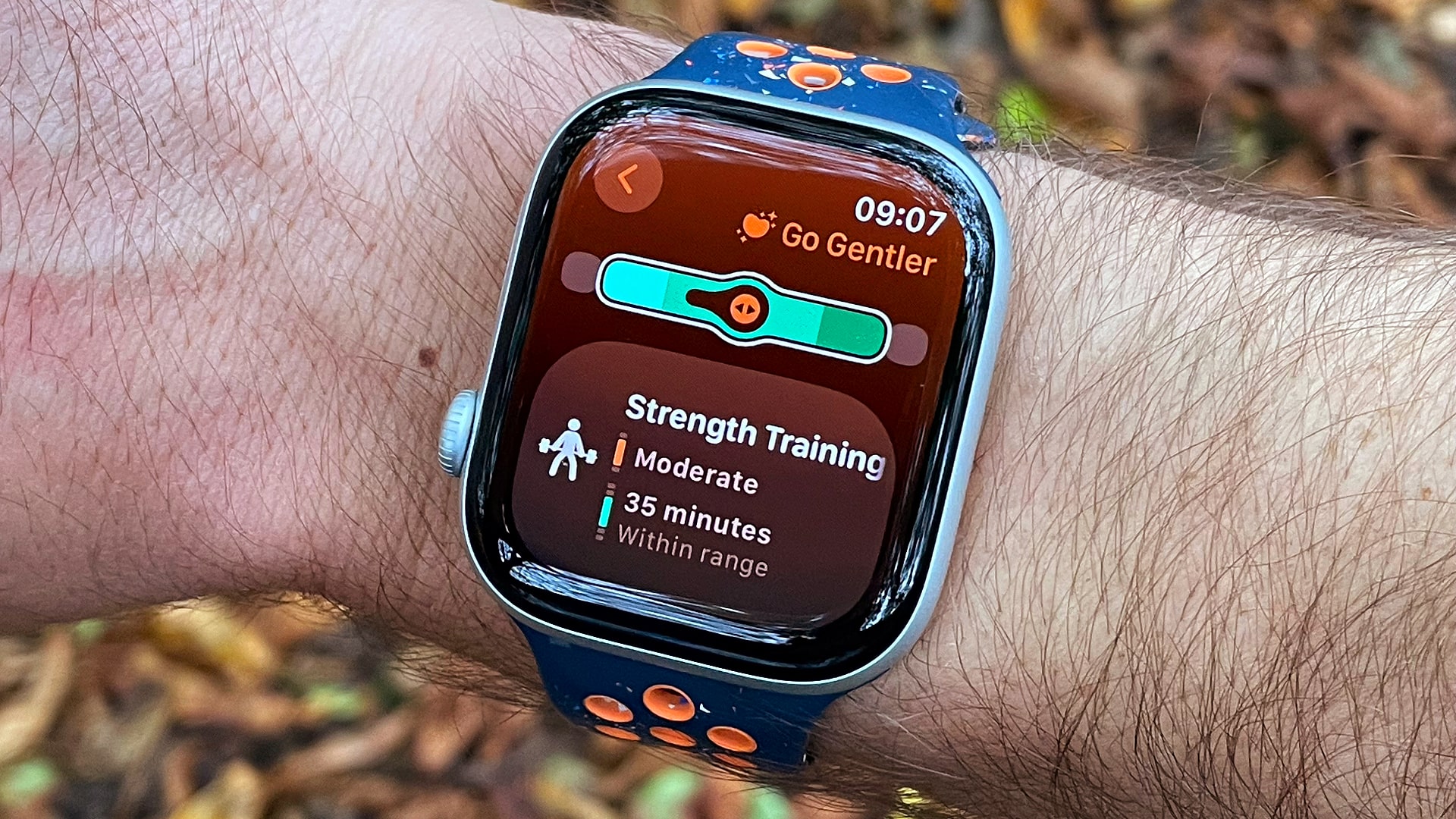
Sign up for breaking news, reviews, opinion, top tech deals, and more.
You are now subscribed
Your newsletter sign-up was successful
Whether you’ve got the best Apple Watch on the market, an older all-rounder, or a cheap Apple Watch SE 2, one of the joys of using an Apple Watch is discovering and downloading new apps. But with an extensive catalog and more titles being added daily, finding great apps can be overwhelming.
I’ve been using the Apple Watch for 10 years, covering and using great apps for fitness, and productivity, and even passing the time with a quick game on the wrist.
To that end, I’ve compiled a list of the 50 best Apple Watch apps you can download right now. We’ve categorized them to help you find what you’re looking for, so whether you want a new running coach, a to-do list organizer, or an AI companion, here are the best Apple Watch apps you can download right now.
With the Apple Watch app lending itself to things like health and fitness, you'll find there's more of a focus on wellbeing overall here, as well as productivity. Conversely, the Apple Watch is a lot more limited when it comes to activities like social media, but that doesn't mean there aren't options!
Best Apple Watch apps: Productivity
Things 3
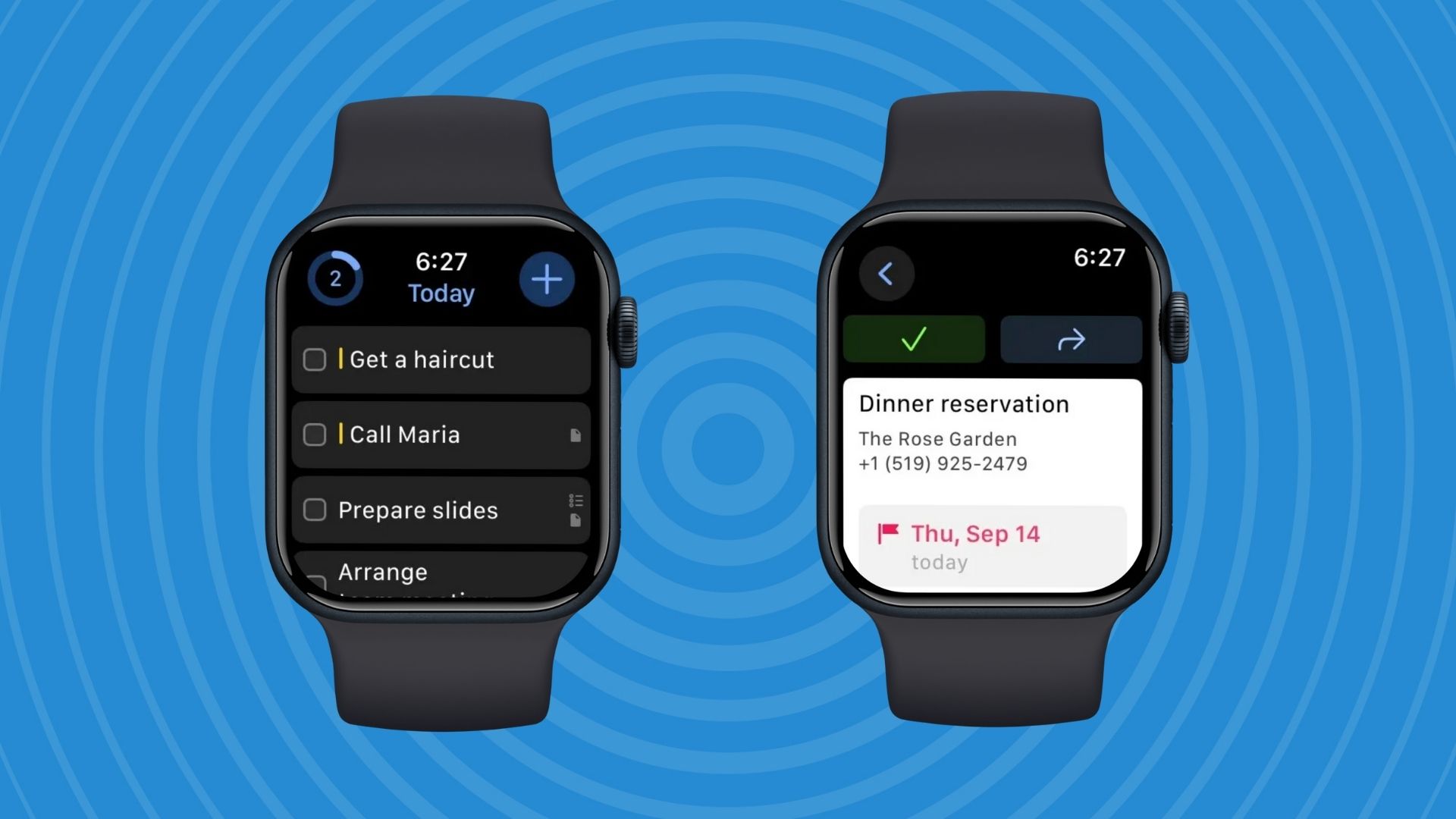
Things 3 is an award-winning productivity manager that can help you build to-do lists, manage projects, and organize your life into areas such as work, family, and finance. It's a beloved iPhone app with a ton of features and an Apple Watch app that gives you at-a-glance views of your Today list, letting you check off things as you go and dictate new ones on the fly.
Download from App Store ($9.99)
Todoist
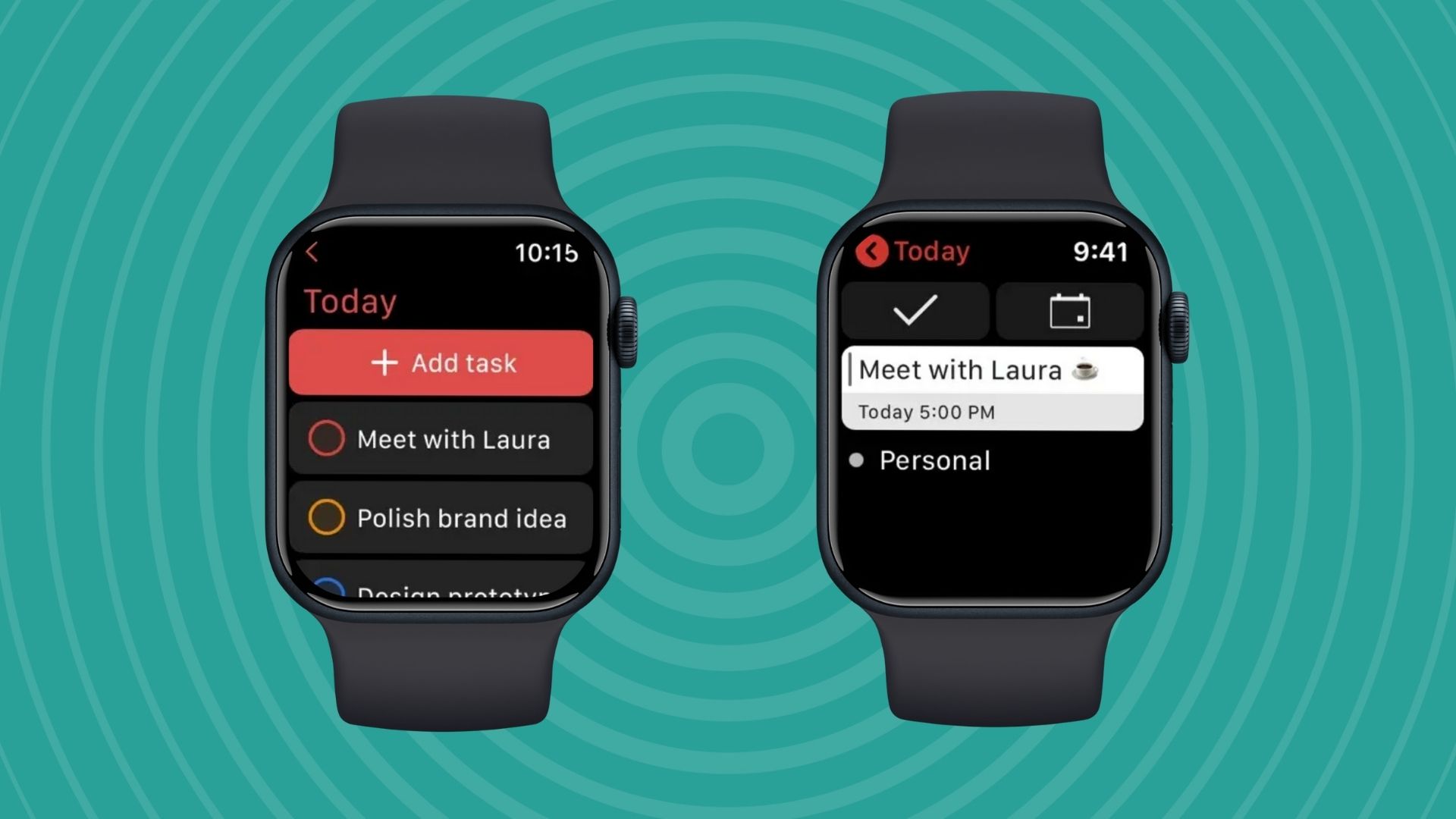
Boasting over 42 million users, Todoist is another great to-do list/calendar app designed to help you build habits and be more productive. You can link it with tools like Gmail, Slack, and Outlook. We called it "Nothing short of stellar" in our Todoist review. Use your Apple Watch to check off or add tasks and see at-a-glance views of your upcoming day.
Sign up for breaking news, reviews, opinion, top tech deals, and more.
Download from App Store (free)
Fantastical
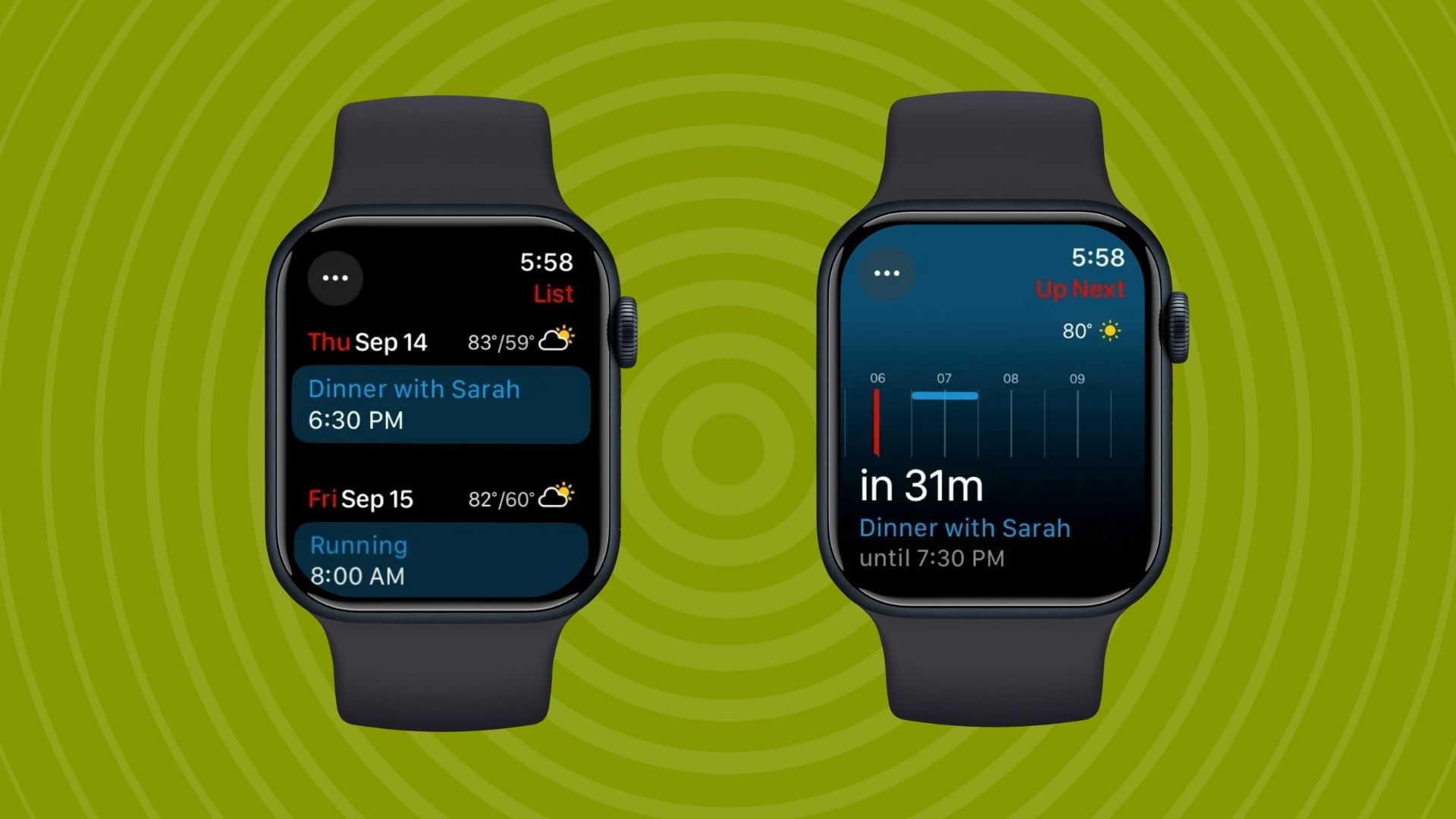
Fantastical is perhaps the best-known and most prolific calendar app in the Apple ecosystem. It boasts a stunning interface and features including tasks, calendar sets, conference calls, weather, time, zones, and more. It's an epic upgrade to the standard Apple Calendar. On Apple Watch, you can get day-to-day looks, tasks, and even a Fantastical custom watch face so you can stay on top of your schedule.
Download from App Store (Free)
Uptime
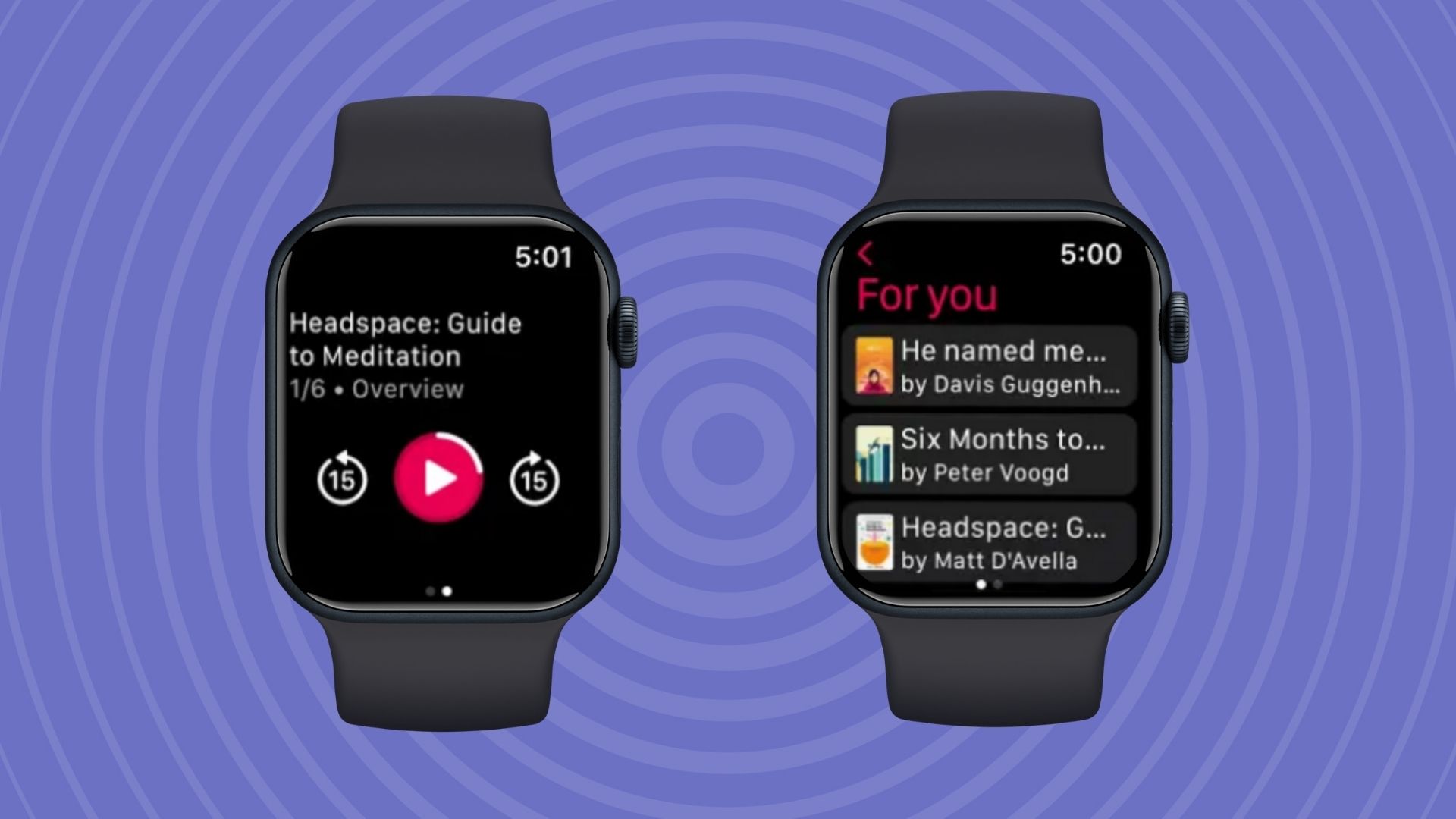
Uptime is a free app designed to help you get smarter in five-minute bursts. It lets you listen, read, or watch bite-sized chunks of books, podcasts, documentaries and courses, from New York Times bestsellers to Netflix documentaries, as well as podcasts from Apple and Spotify. You can also save quotes, insights, and actions. On Apple Watch, control audio and browse the latest 'hacks' right from your wrist.
Download from App Store (Free)
Petey
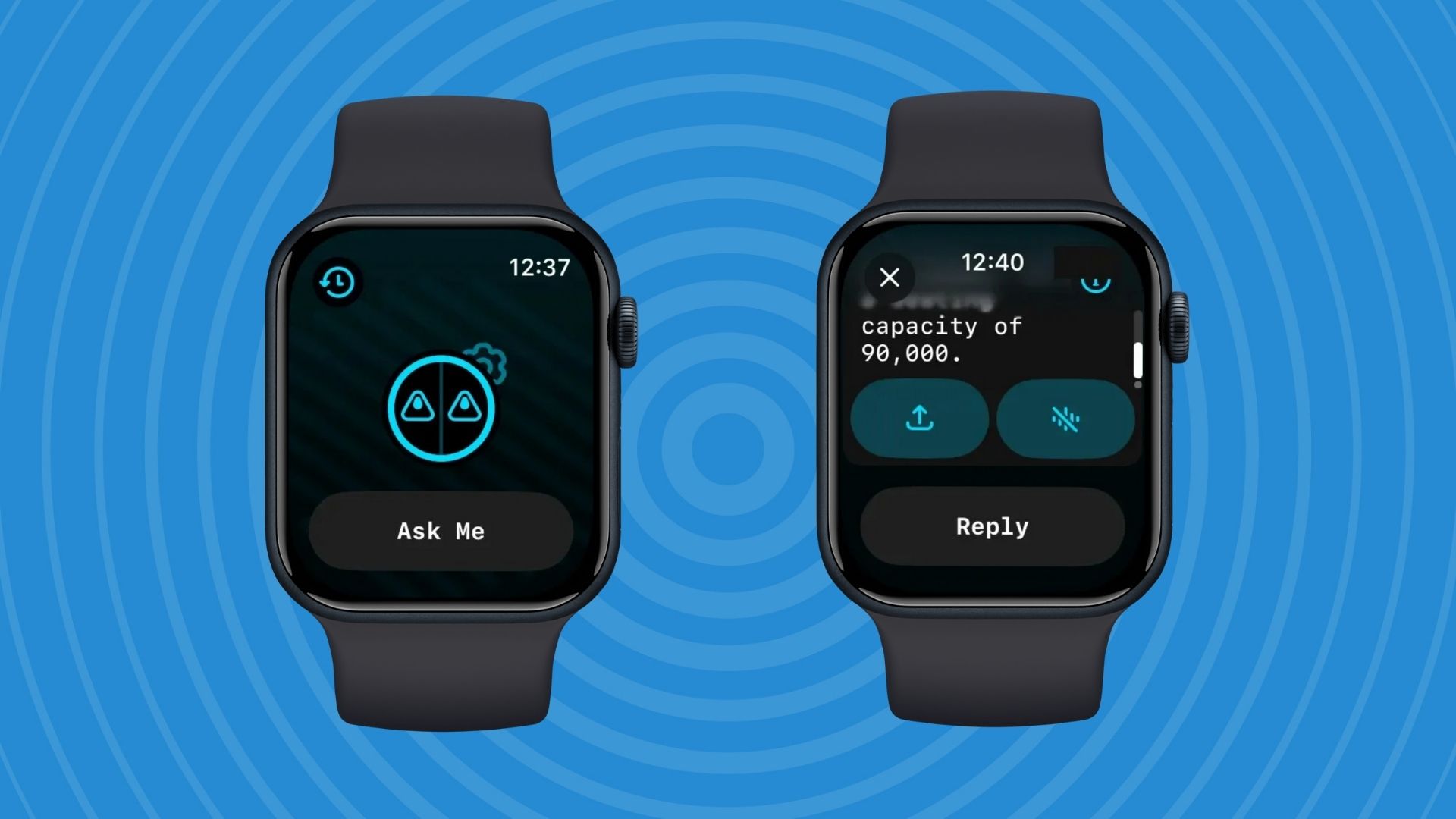
Petey is quite simply ChatGPT for the Apple Watch. Right on your wrist, you can interact with OpenAI's large language model to do any number of things. You can create playlists in Apple Music, find locations in Maps, get answers to questions, and convert text to speech – useful if you're busy and need an email read to you on the go. You can even use GPT-4 if you pay the extra. With no sign of Apple Intelligence on the Apple Watch, this is as good as it gets for AI on your wrist right now.
Download from App Store (Free)
Money Coach
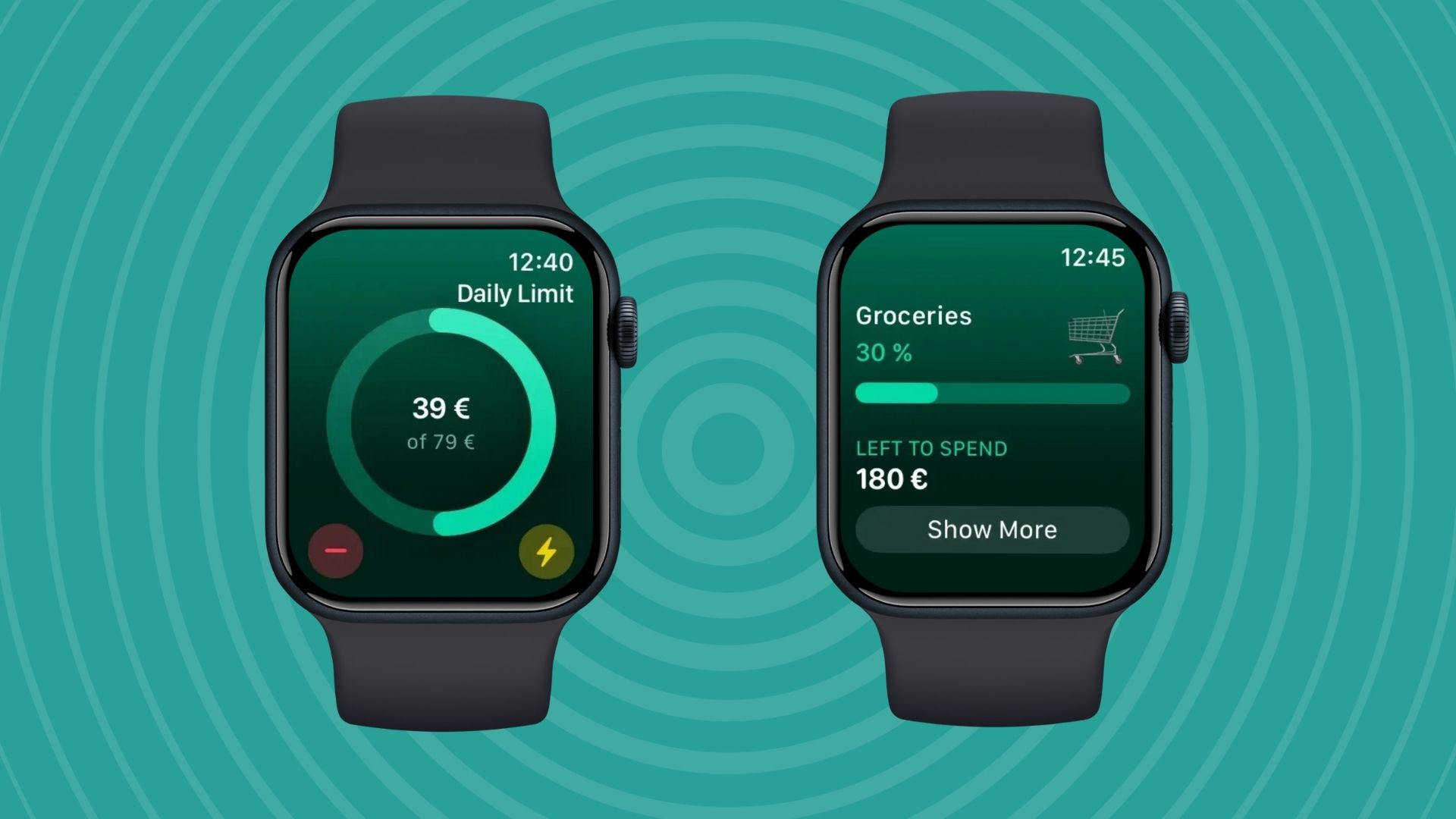
Money Coach is a popular budget planning and finance app for iPhone, iPad, and Mac. It helps you improve your financial habits with budgeting and saving tools, as well as individual smart budgets. You can keep as many accounts and budgets as you need, with smart goals customized towards you. There's even a real-time net worth tracker! Use the Apple Watch app to get quick glances at your daily limits, budgets, and recent transactions.
Download from App Store (Free)
Structured
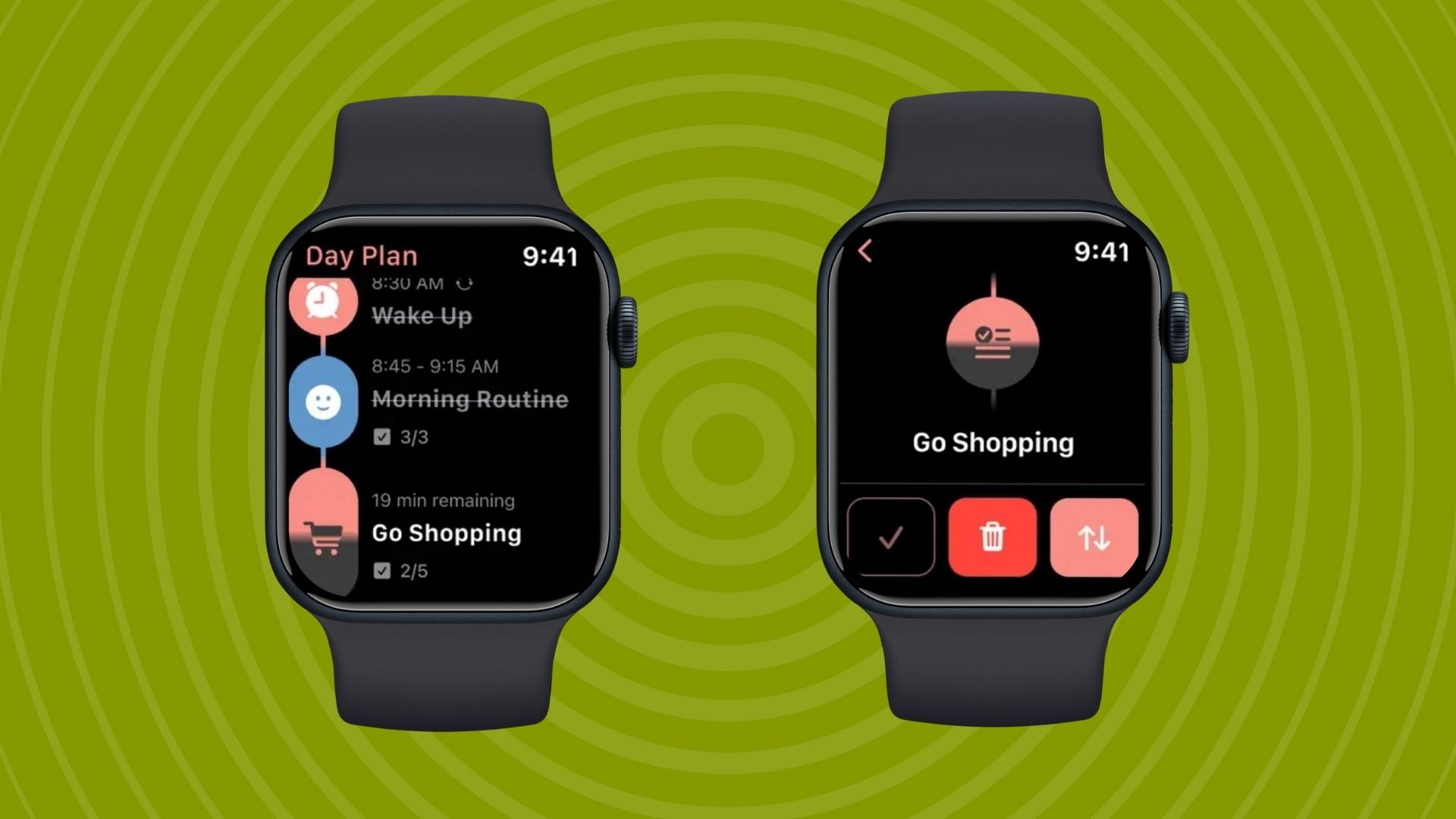
Structured is an all-in-one day planner that combines a calendar, to-do list, and habit tracker into a single timeline. You can manage tasks, store thoughts, create notes, and break down projects into sub-tasks. On the Apple Watch, you'll get a day plan, task management, and even a look at your Inbox of tasks and reminders. Of course, all this also syncs to your Mac, iPhone, and iPad as well.
Download from App Store (Free)
Noted
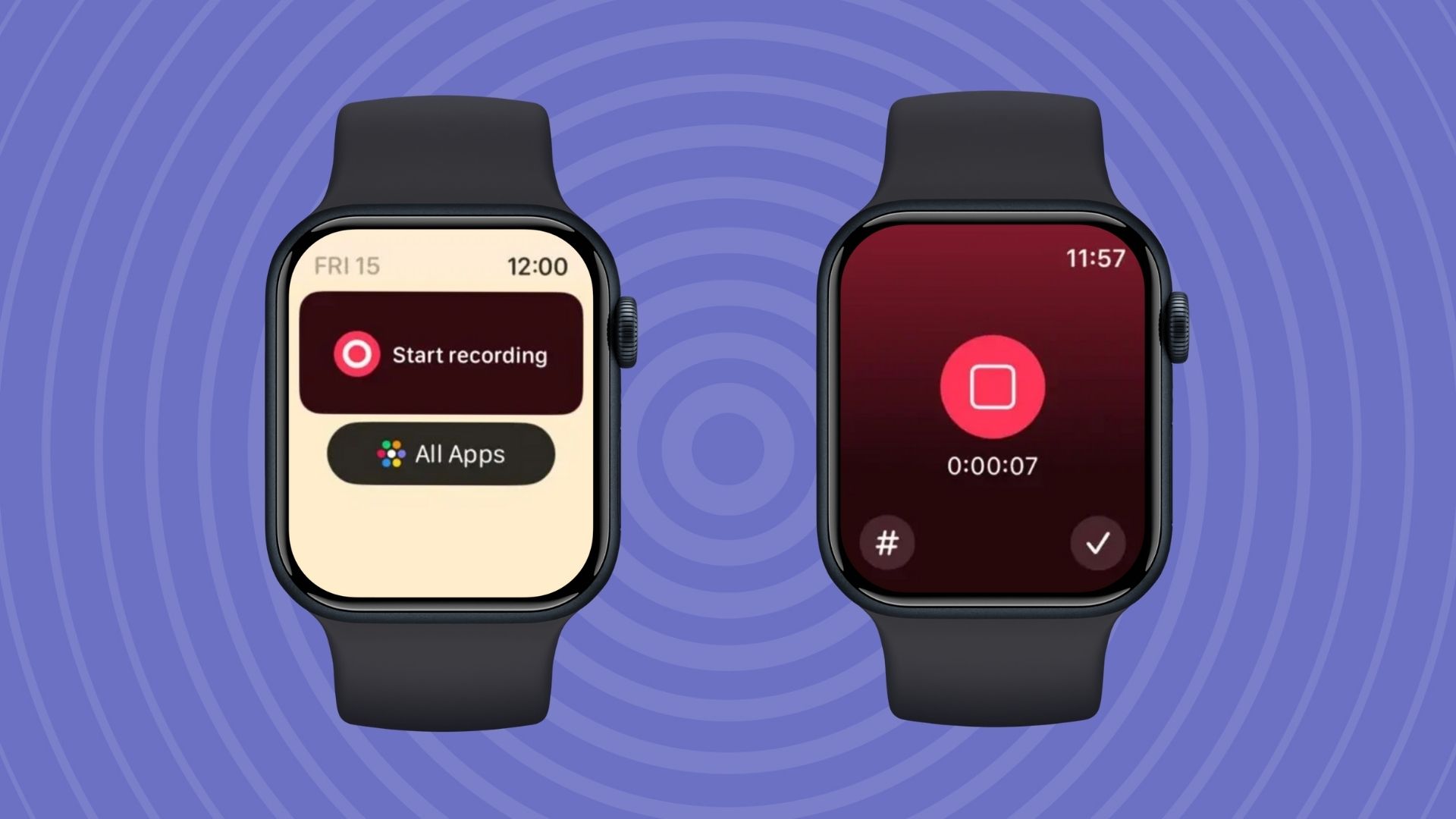
Noted is an AI recording app that can transcribe conversations using AI. It's perfect for recording quick voice notes directly to your wrist, and you can even add time-stamped notes to your recordings. Intelligent playback powered by machine learning cuts through silences and unwanted noise, and you can dictate your notes and turn speech to text instantly. Available on iPhone and iPad, the Apple Watch app lets you record right to your wrist with just one tap.
Download from App Store (Free)
Focus
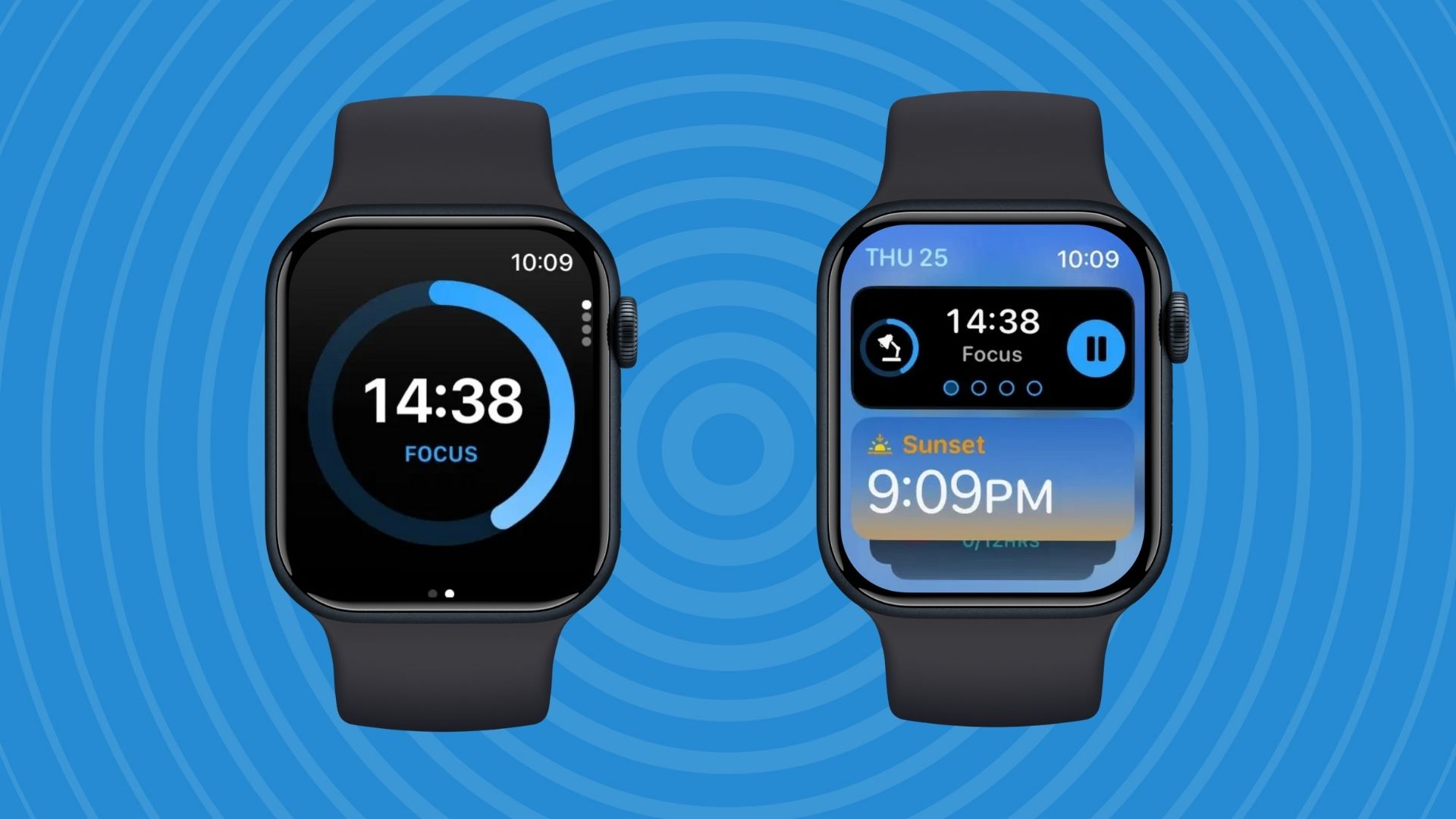
Focus is a productivity timer you can use on your iPhone, iPad, and Apple Watch to help you break down big tasks into smaller, more manageable chunks. These 'Focus Sessions' help you stay focused and on track, tackling one task at a time while taking regular breaks. There's also a task manager and even stats to help you keep track of your work and how productive you are, which helps to keep you motivated. The independent Watch app lets you control sessions on your wrist and track progress throughout the day, keeping the distractions of your phone at arm's length.
Download from App Store (Free)
Morpho Convert
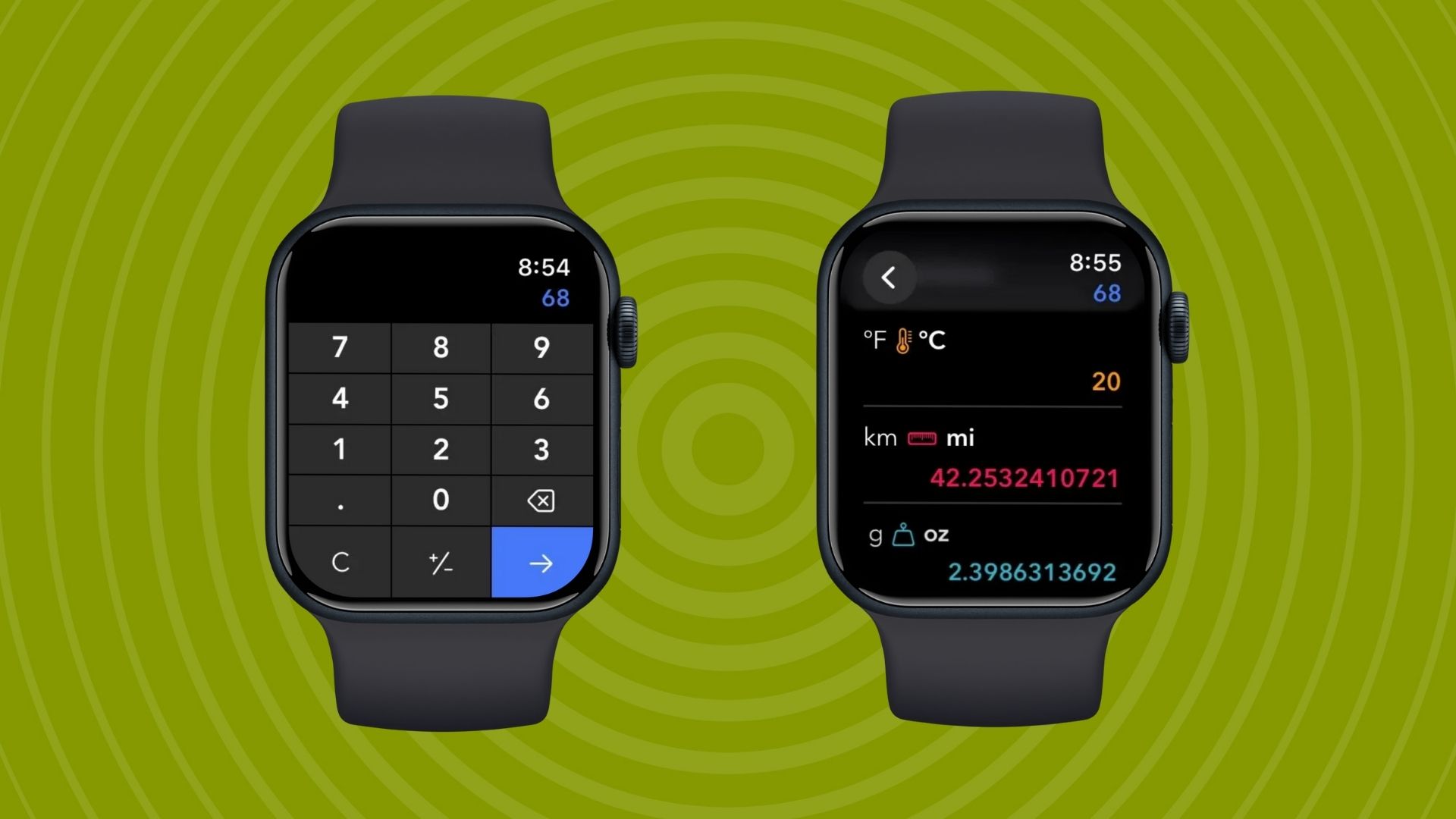
Have you ever needed to do a quick conversion on the fly? Maybe a recipe calls for pounds, but your scale measures in grams? Do you want to quickly convert distance from miles to kilometers, or temperature from Celsius to Fahrenheit? On holiday? Maybe you want to check the price of something in your native currency. Whatever the case, the Morpho Convert Current & Unit app is a fast conversion app that lets you dial in calculations right on your wrist. There are 273 units and 173 different currencies, with live exchange data. The Watch app will even speak your results back to you in one of 29 different languages.
Download from App Store (Free)
Just Press Record
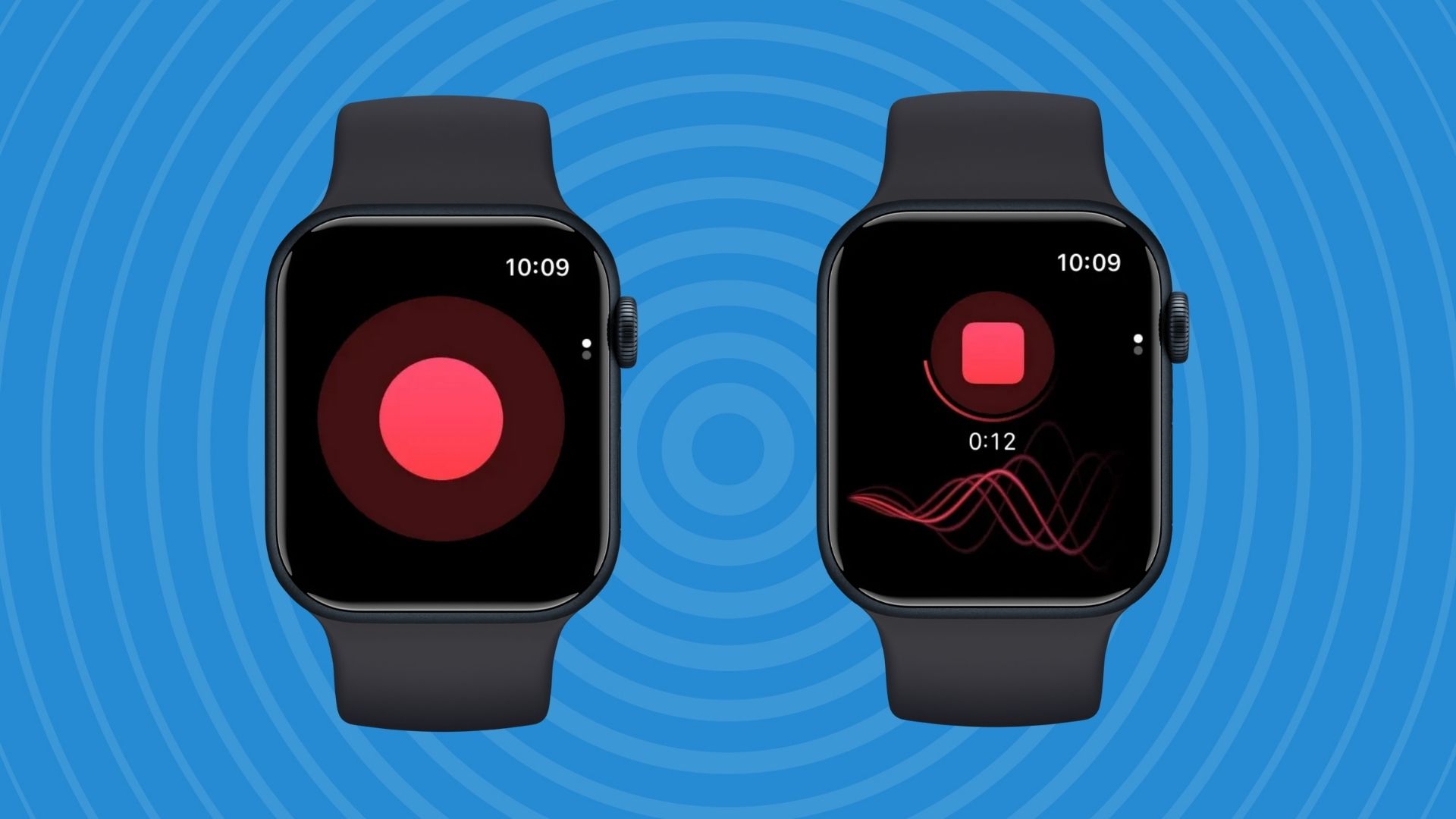
Just Press Record is another great on-the-fly recording and transcription app that gives you one-tap audio recording on your wrist. Its simple control system lets you start, stop, pause, and resume recording with a single press, and you can even add it to Shortcuts, using the Apple Watch Ultra's Action button to start your recording. Recordings can be transcribed on iPhone or iPad into searchable text, with support for more than 30 languages. You can also chop up and edit audio in the apps. The Apple Watch app also supports playback.
Download from App Store ($4.99)
Best Apple Watch apps: Health and Exercise
Smart Gym
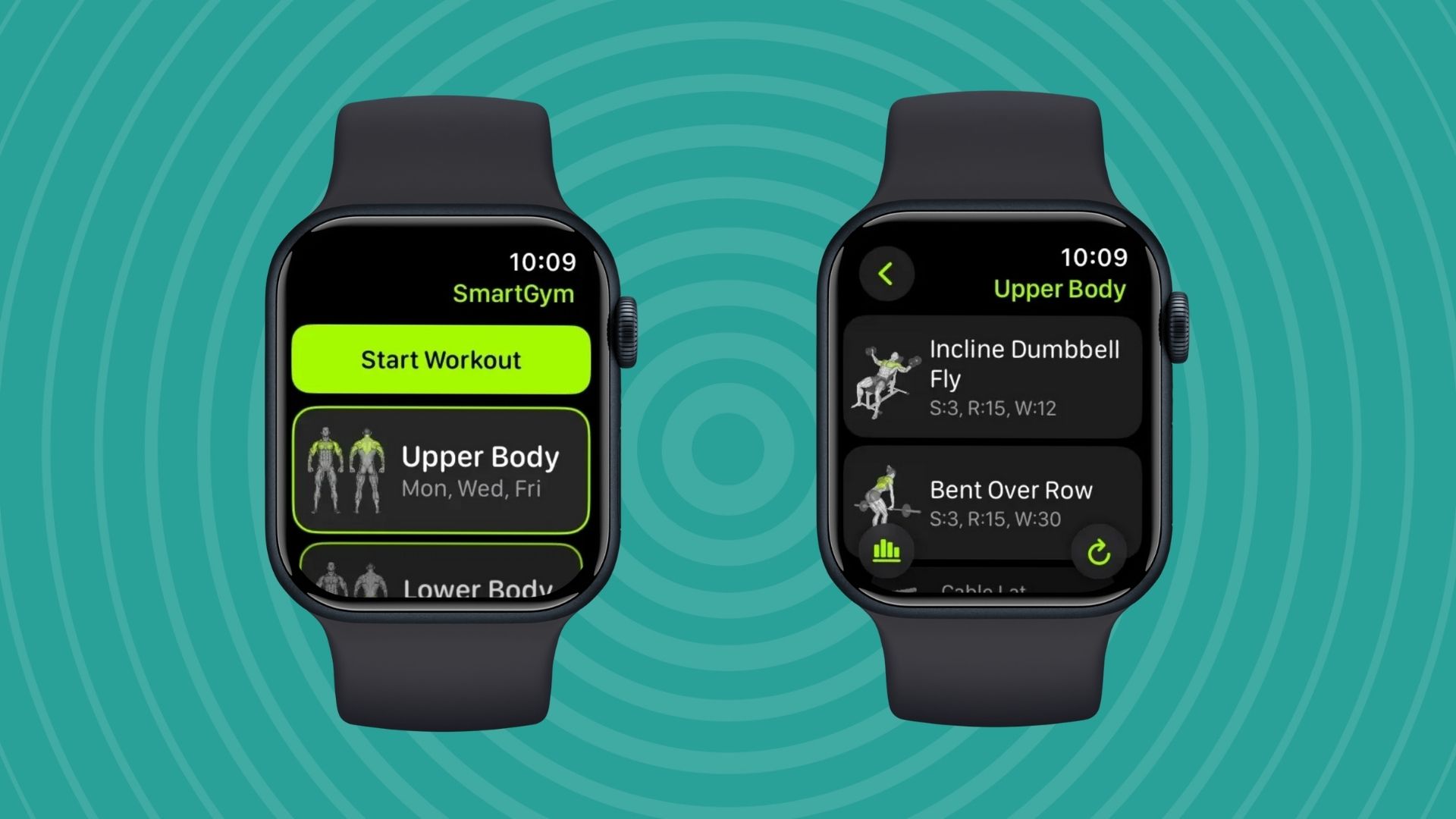
The SmartGym Apple Watch app is an award-winning workout app that's so good it even features in Apple's own TV adverts for the Watch. SmartGym offers follow-along workouts housed directly on your wrist, using AI to create personalized workouts for you. There are custom timers for specific exercises, with over 690 pre-installed exercises replete with animations. The Watch app will even count reps while you work out. You can exercise without your iPhone present, tracking your heart rate, distance and calories, while the session data will count towards closing your rings for the day. You can use Siri to start workouts and modify exercises on the fly, too.
Download from App Store (Free)
Stepsapp Pedometer
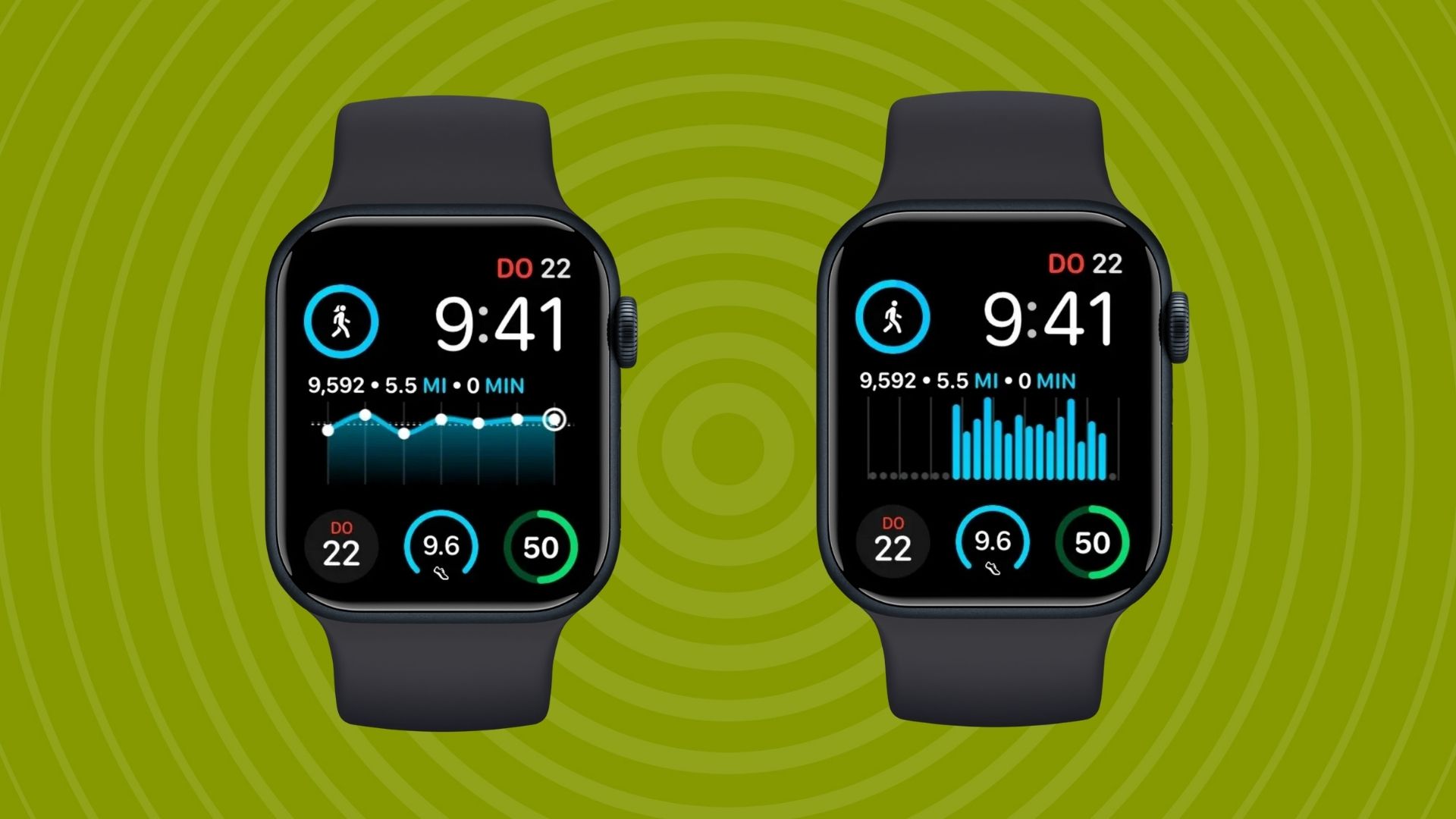
Your Apple Watch already automatically tracks steps as part of your daily activity, but if you want a more dedicated app to really dial in your progress, then StepsApp is the one. You can use the app to set calorie goals and count steps, with charts and animations to track your progress. Workouts include Map Tracking, Heart Rate Zones and Insights, as well as GPS integration. If you're truly passionate about walking and want a more dedicated, detailed look at your progress on foot, you'll get more out of this app than Apple's bog-standard Workout app.
Download from App Store (Free)
Strava
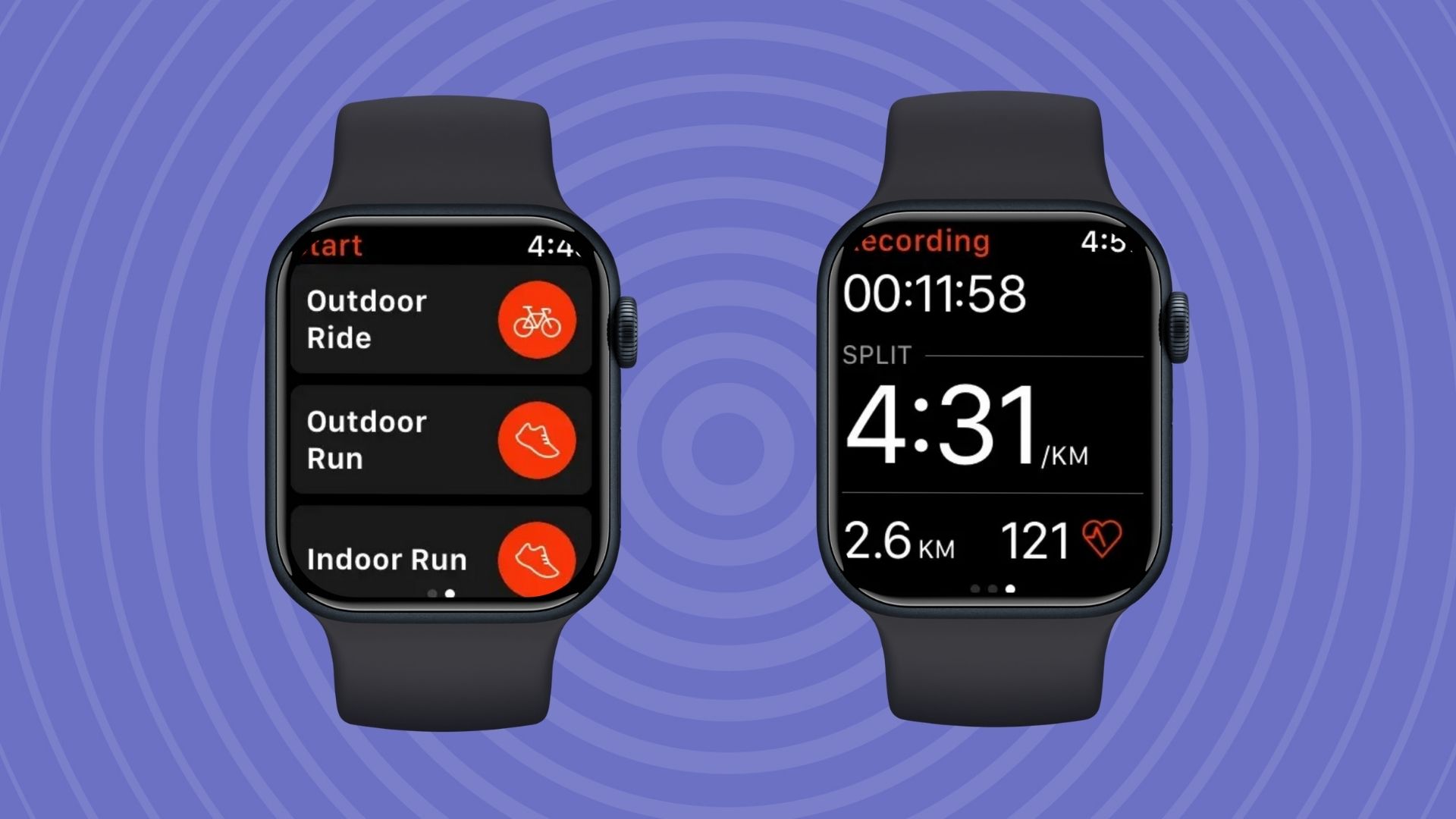
Strava is one of the best fitness apps for outdoor adventurers, cyclists, runners, and hikers. With its leaderboards, maps, and more, it's one of the most popular workout apps in the world. The Apple Watch companion lets you quickly start recording your workouts, with at-a-glance data on your splits, time, heart rate, and more. Use your Apple Watch to track your movement, journey, and energy expenditure as you run, then upload your efforts for the world to see.
Download from App Store (Free)
Peloton
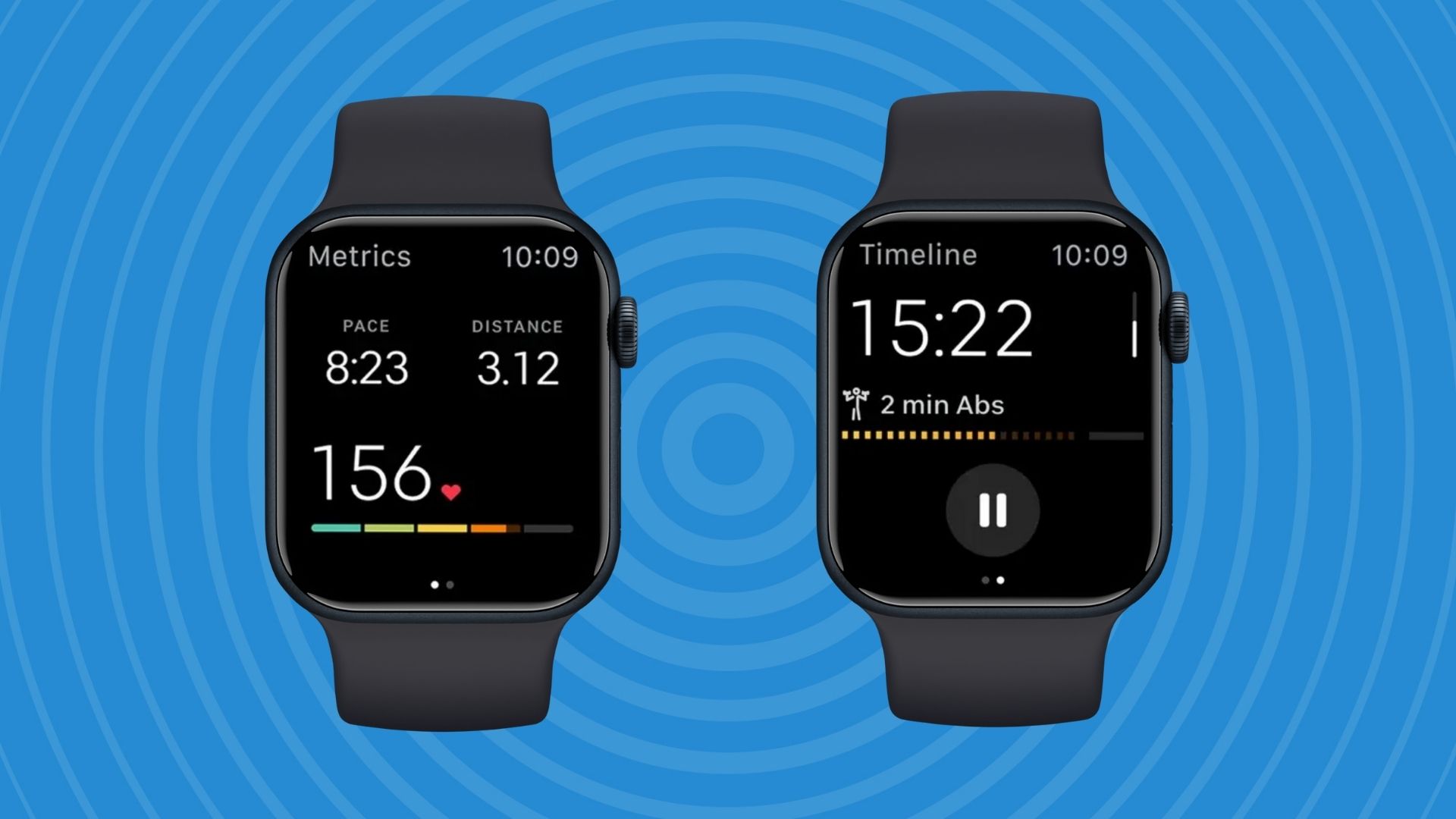
The Peloton Apple Watch app will keep track of your pace, distance, heart rate, and progress while you tackle Peloton's myriad array of workouts. Whether you're training indoors or outdoors, for strength or endurance, the Peloton Apple Watch app helps you track all of your stats and progress. While it's more limited than some workout apps, the Peloton Watch app is essential for owners of its Peloton Tread or Peloton Bike. You'll need a Peloton subscription to make the most of it though.
Download from App Store (Free)
MyFitnessPal
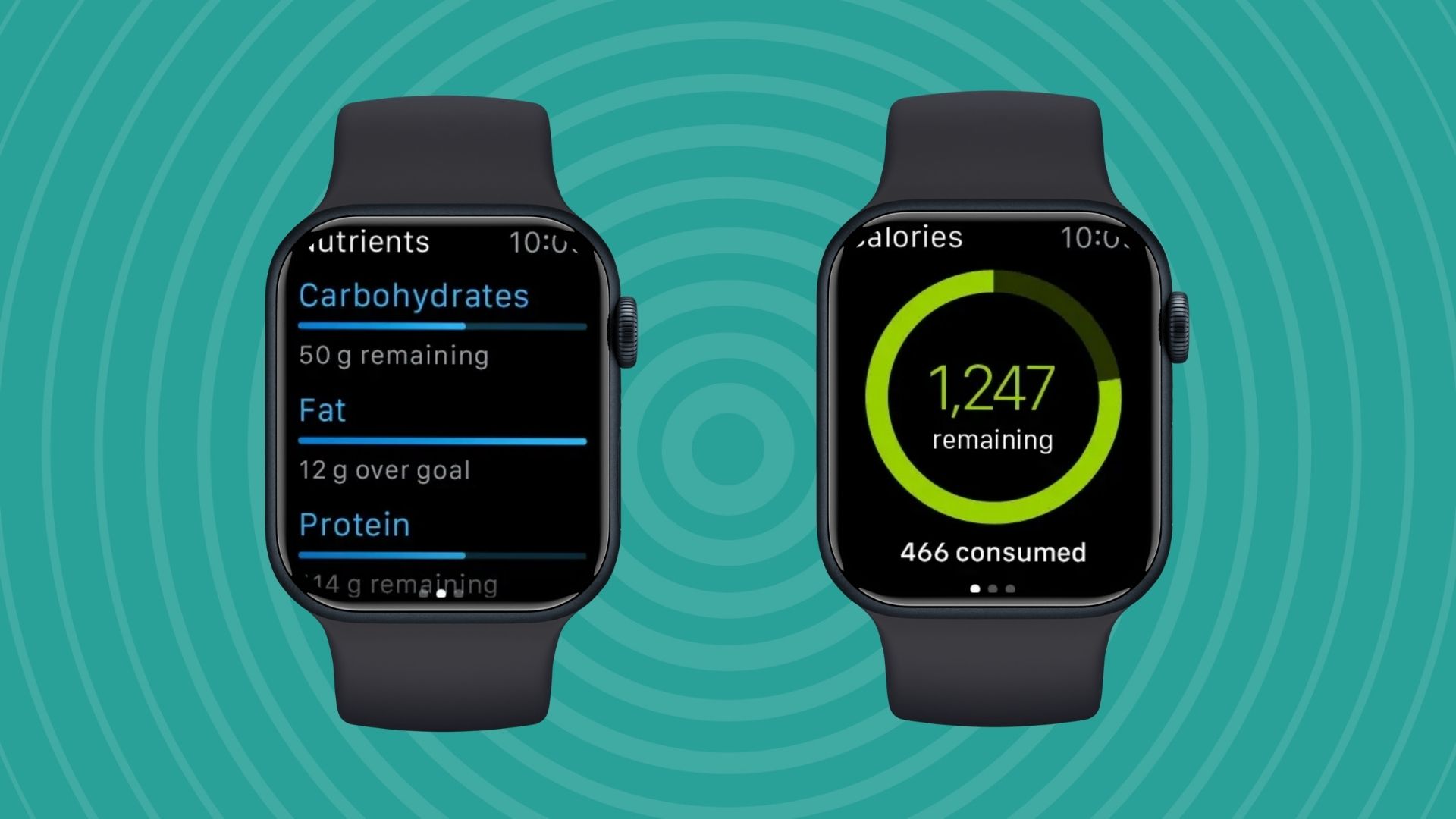
Under Armour's MyFitnessPal is one of the best nutrition and calorie tracking apps on the market, letting you scan food barcodes and track all of your meals in one place. It's a brilliant companion for managing nutrition, especially if you're trying to lose weight. With the companion Apple Watch app you can see your stats at a glance, including how many calories you've consumed, nutrient breakdown, and the calories you've earned through activity. One of our writers tried using MyFitnessPal to record everything he ate for a week.
Download from App Store (Free)
Runna
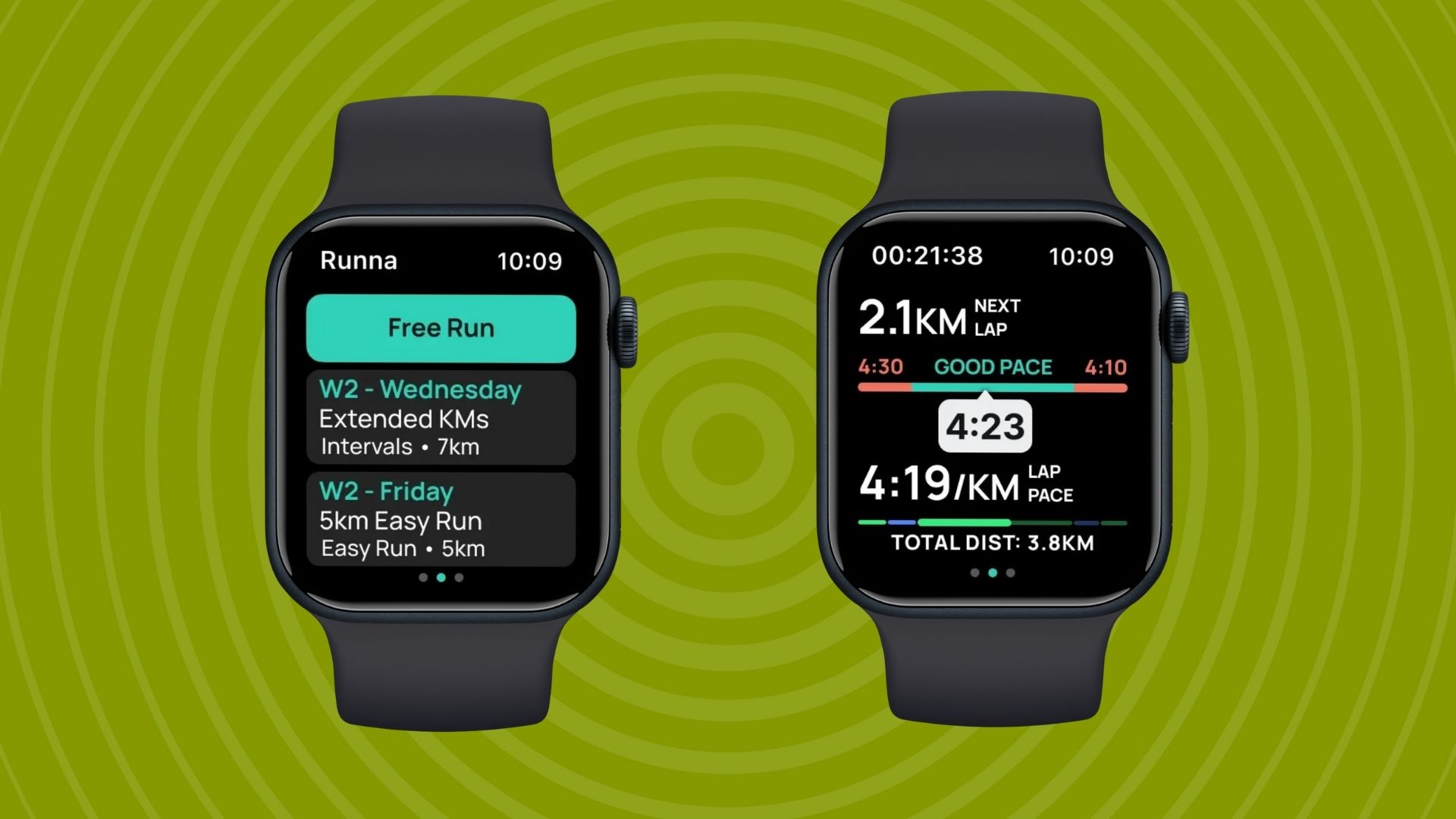
Runna is a very popular running coach app with personalized training plans to help you tackle 5k, 10k, or even longer runs. We rated it highly in our Runna review: There's a community for motivation and you'll get very detailed plans for slow sessions, intervals, recovery runs, and more. The Apple Watch app works better without your phone present (in my experience) and can be used to track your runs live. It'll give you audio and taptic prompts when it's time to move between intervals, all while recording your route, heart rate, calories, and more.
Download from App Store (Free)
Nike Training Club
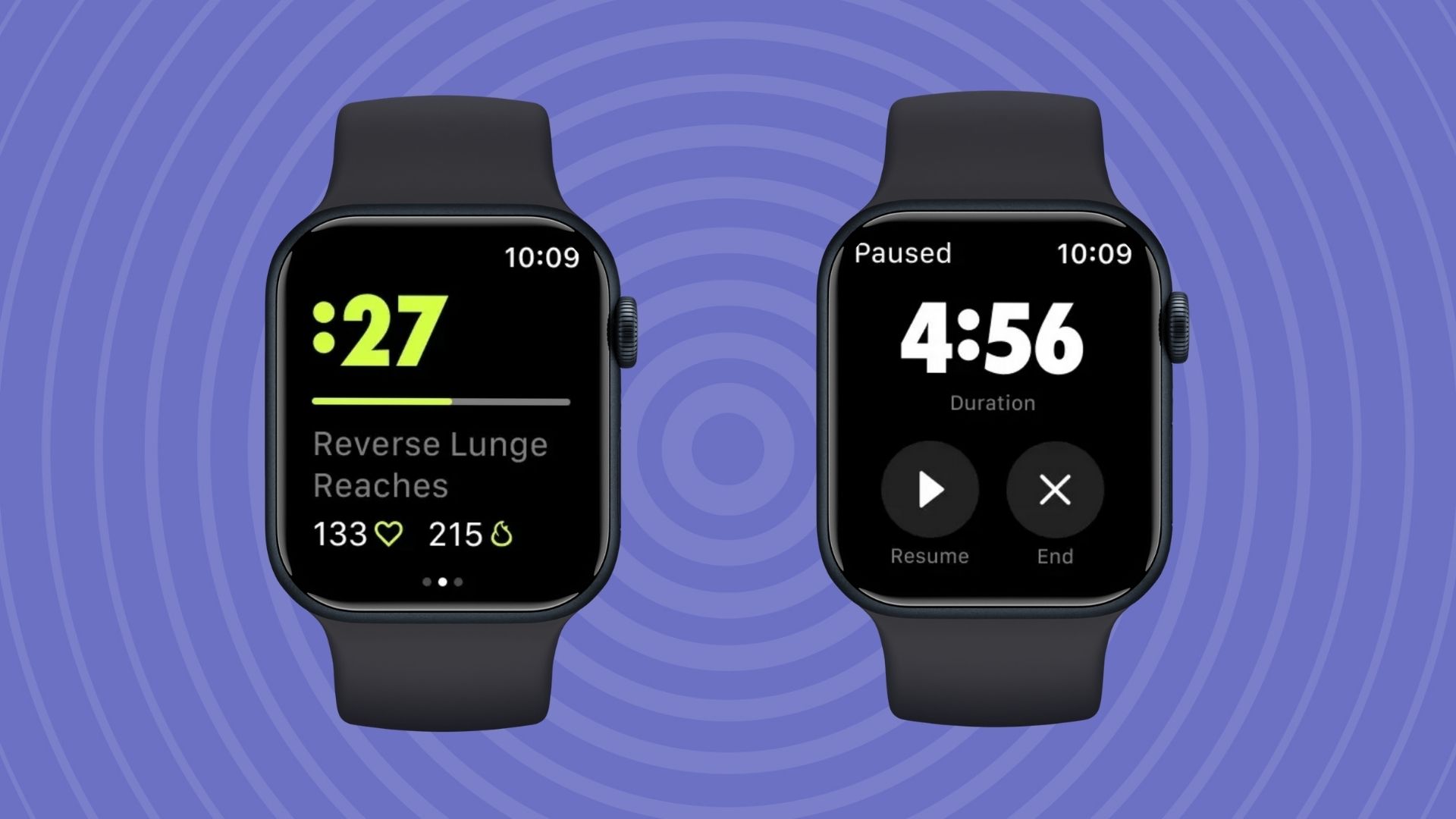
Nike Training Club is a popular health and fitness app featuring home workouts, yoga, mindfulness, high-intensity interval training, and more. Strap on the Apple Watch app and it'll track sets and reps during workouts, as well as offering timers and recovery tracking. Use your watch to directly advance to the next drill, pause, and skip, also accessing heart rate monitoring and calorie tracking info without a phone.
Download from App Store (Free)
AllTrails
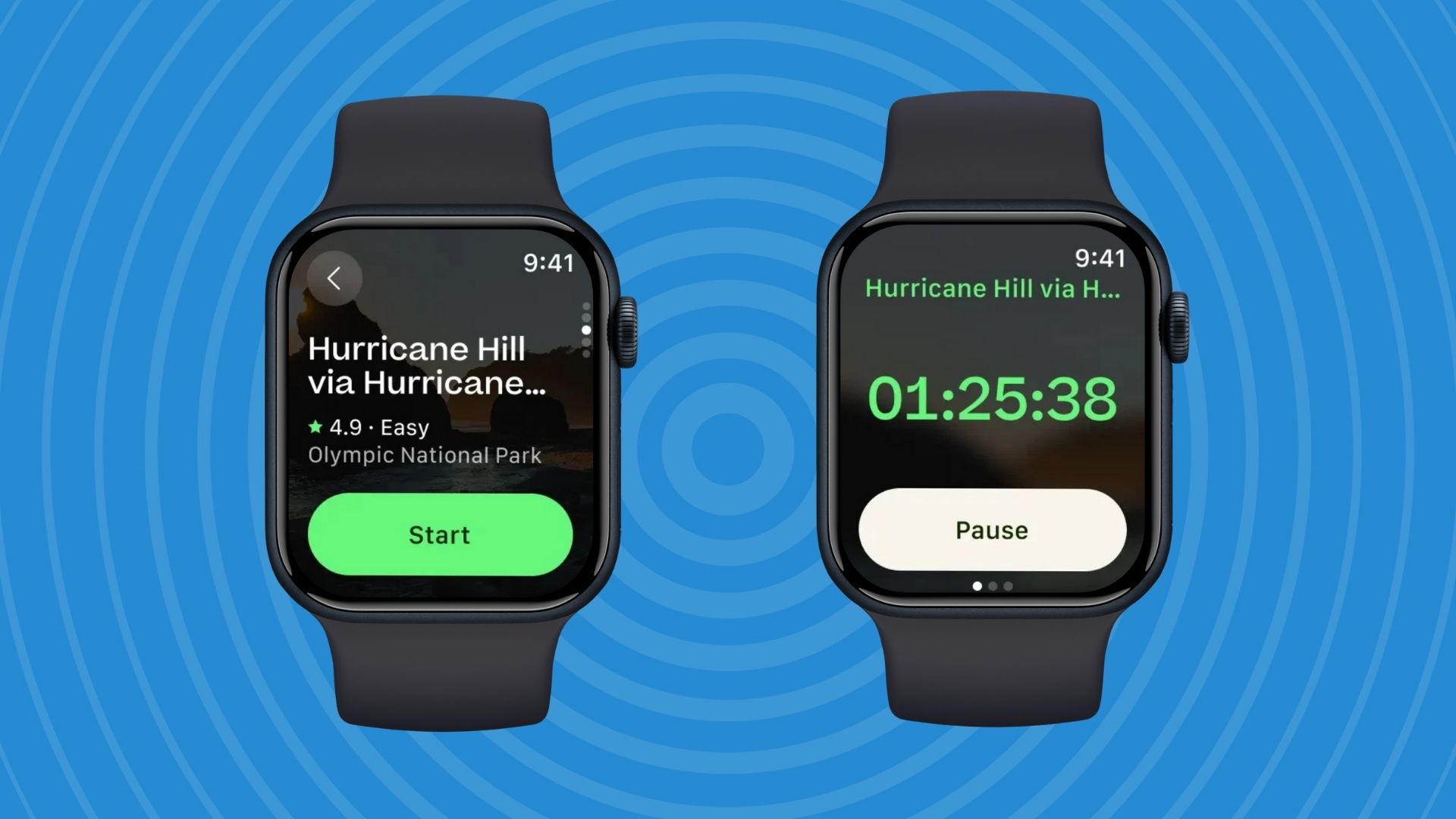
AllTrails is an award-winning app for hiking, biking, and running that gives you access to guided local trails. We rated this one highly too: you can see our AllTrails review for more info on this. Featuring 450,000 routes around the world, you can search by skill level, interest, and more. It's definitely one of the most comprehensive and feature-rich outdoor exploration apps out there. Your Apple Watch companion app will track your time, distance, and calories, and there's an always-on compass that helps to keep you on route. All your data is automatically exported to the Apple Health app, too.
Download from App Store (Free)
Golfshot
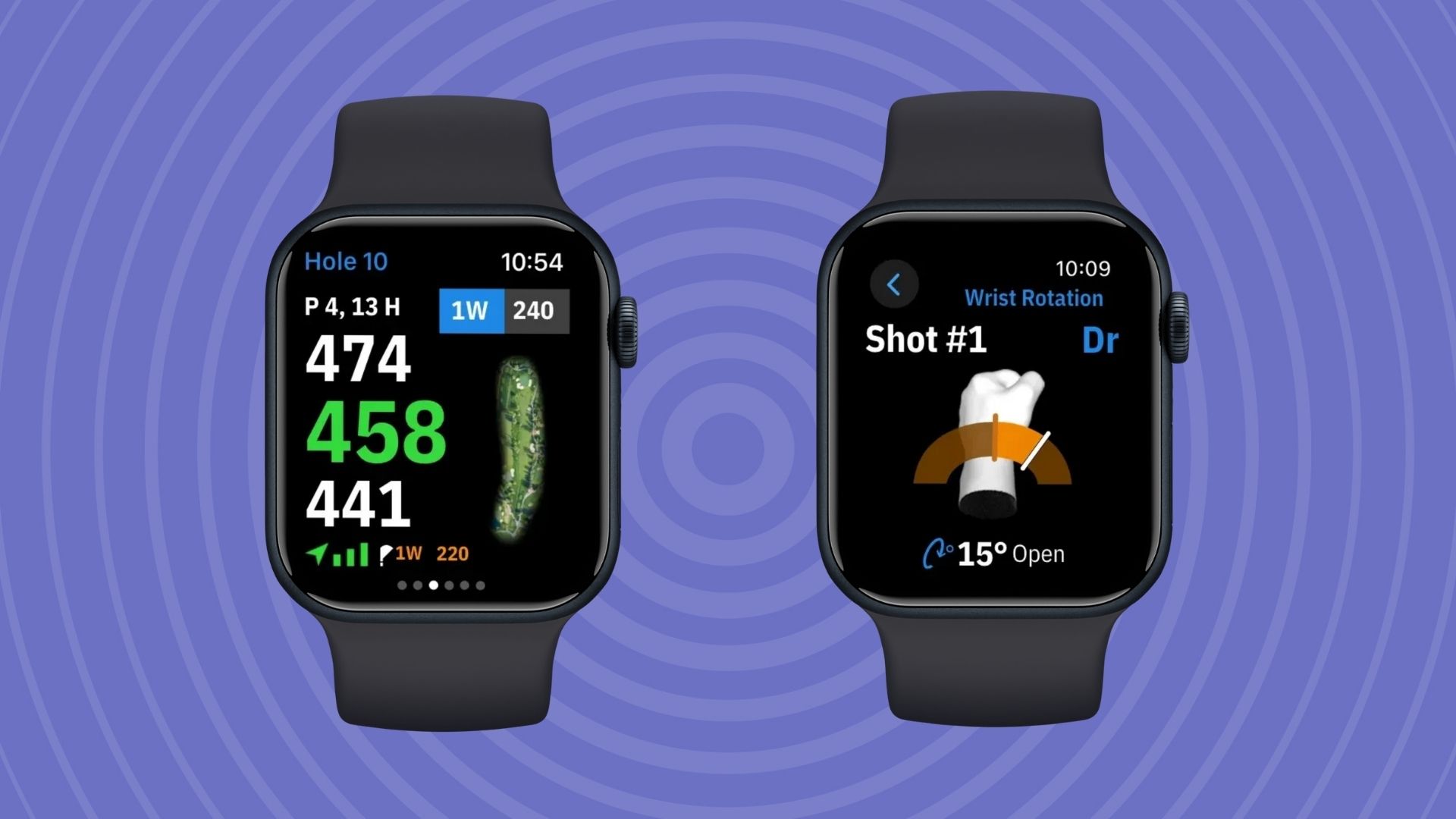
How many apps do you know of that can not only track your golf game but help you improve it too? Golfshot is a GPS rangefinder and golf-scoring app that gives you course insights, GPS distances, and information about greens, hazards, and targets. More than a simple companion, the Golfshot app on Apple Watch can track your shot and analyze your swing, helping you get better with every stroke.
Download from App Store (Free)
WorkOutDoors
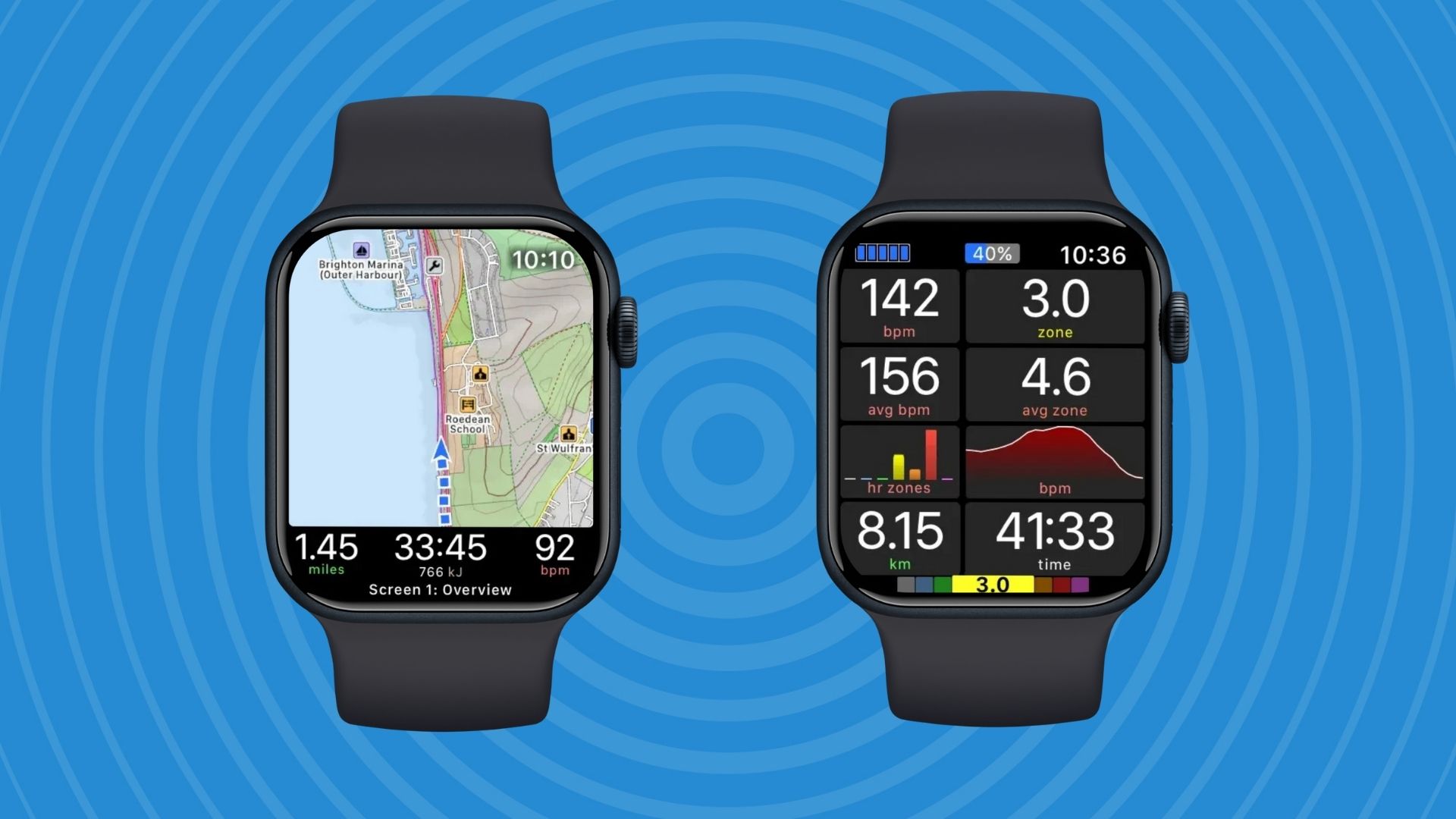
WorkOutDoors is an unbelievably comprehensive and detailed outdoor exploration app for running, cycling, and hiking. It features detailed route maps, and alerts for things like high heart rate, low speed, zone, changes, and more. You can run multiple custom workout screens from a pool of over 600 data fields and graphs. Your watch can be used to cache map data for offline use, replete with topographic details and contours. Your Watch also feeds data for heart rate and pace and can take advantage of Apple's running metrics including power, contact time, and vertical oscillation.
Download from App Store ($7.99)
Best Apple Watch apps: Wellbeing
Athlytic
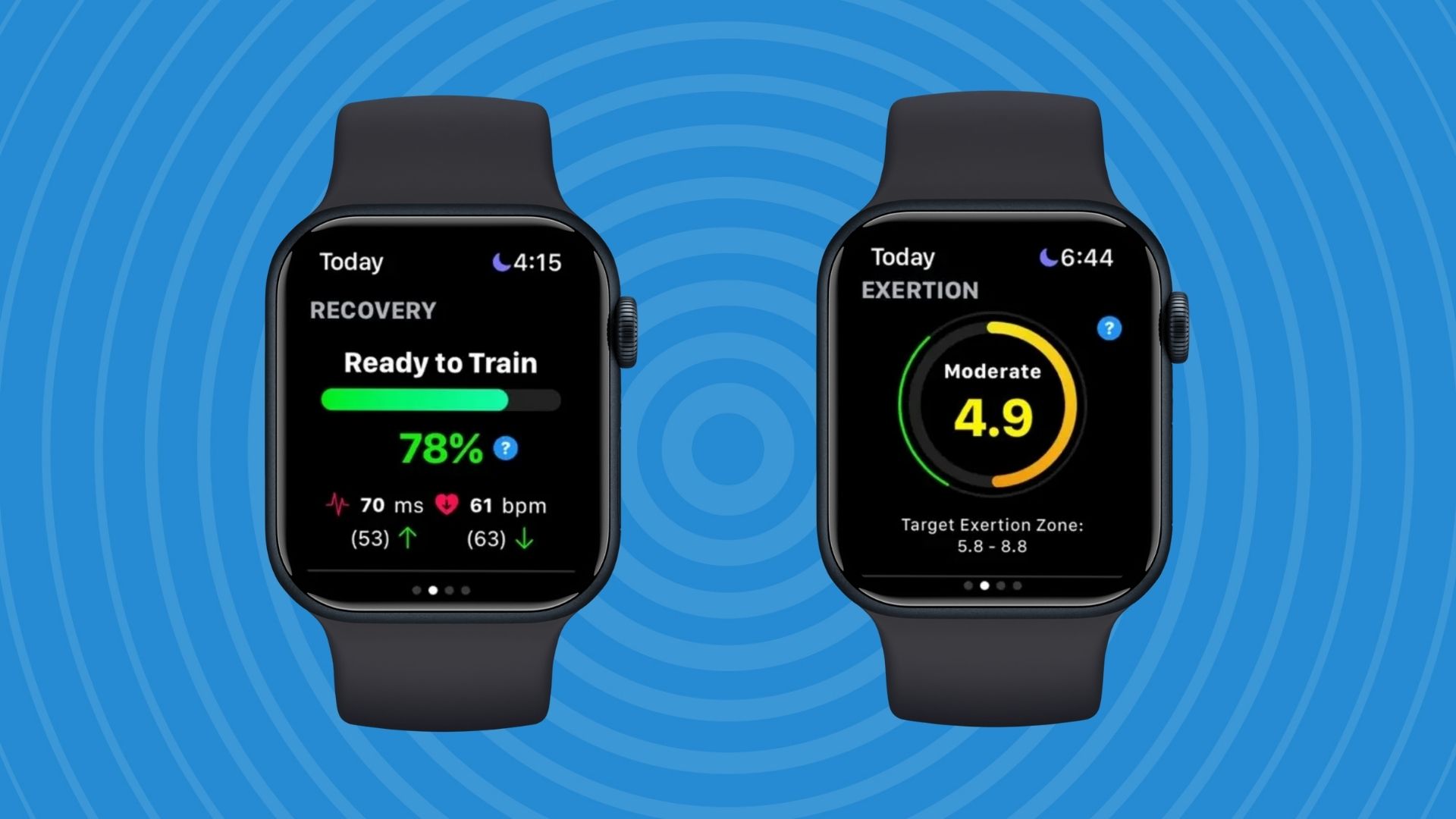
While Apple is doing more for workout recovery these days, it lacks a dedicated feature akin to Garmin's Body Battery or Fitbit's Readiness Score. Enter Athlytic, an app that measures heart rate variability and resting heart rate to give you a recovery score and tell you how ready your body is to train. With 24/7 monitoring of vital heart health metrics, you'll be able to track how much strain and stress your body is under, so you know when to kick on and push the limits, and when to take things a bit easier.
Download from App Store (Free)
Calm
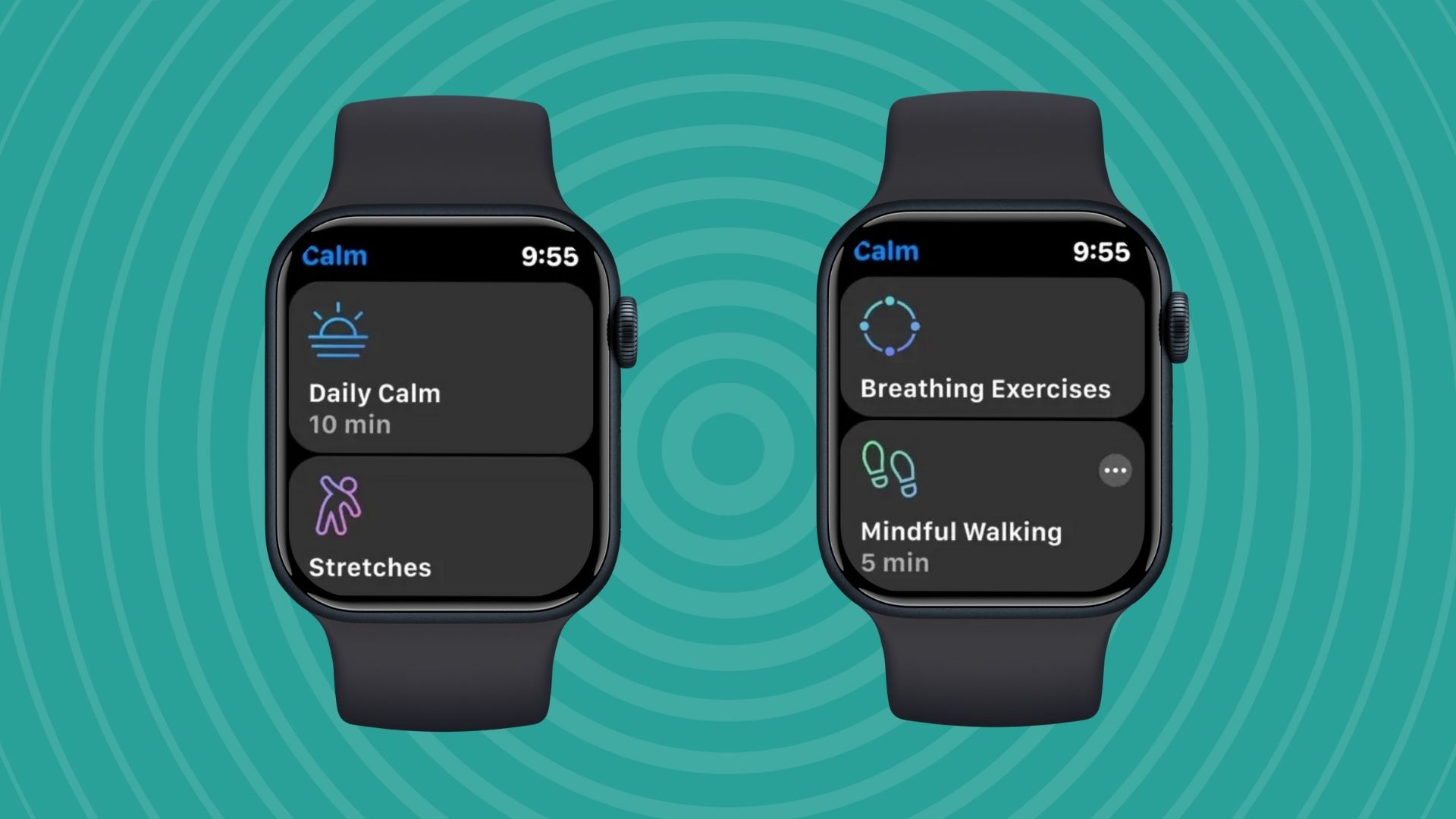
Calm is an app that needs very little introduction, as it's one of the most popular sleep, meditation, and relaxation apps on the App Store. It features guided meditation for all levels of experience to help you get on top of your mental health. The Apple Watch app includes quick access to Calm programs like breathing exercises, stretching, and mindfulness. You can start and control the sessions directly on your wrist, perfect for disconnecting from your phone for a few minutes.
Download from App Store (Free)
Gentler Streak
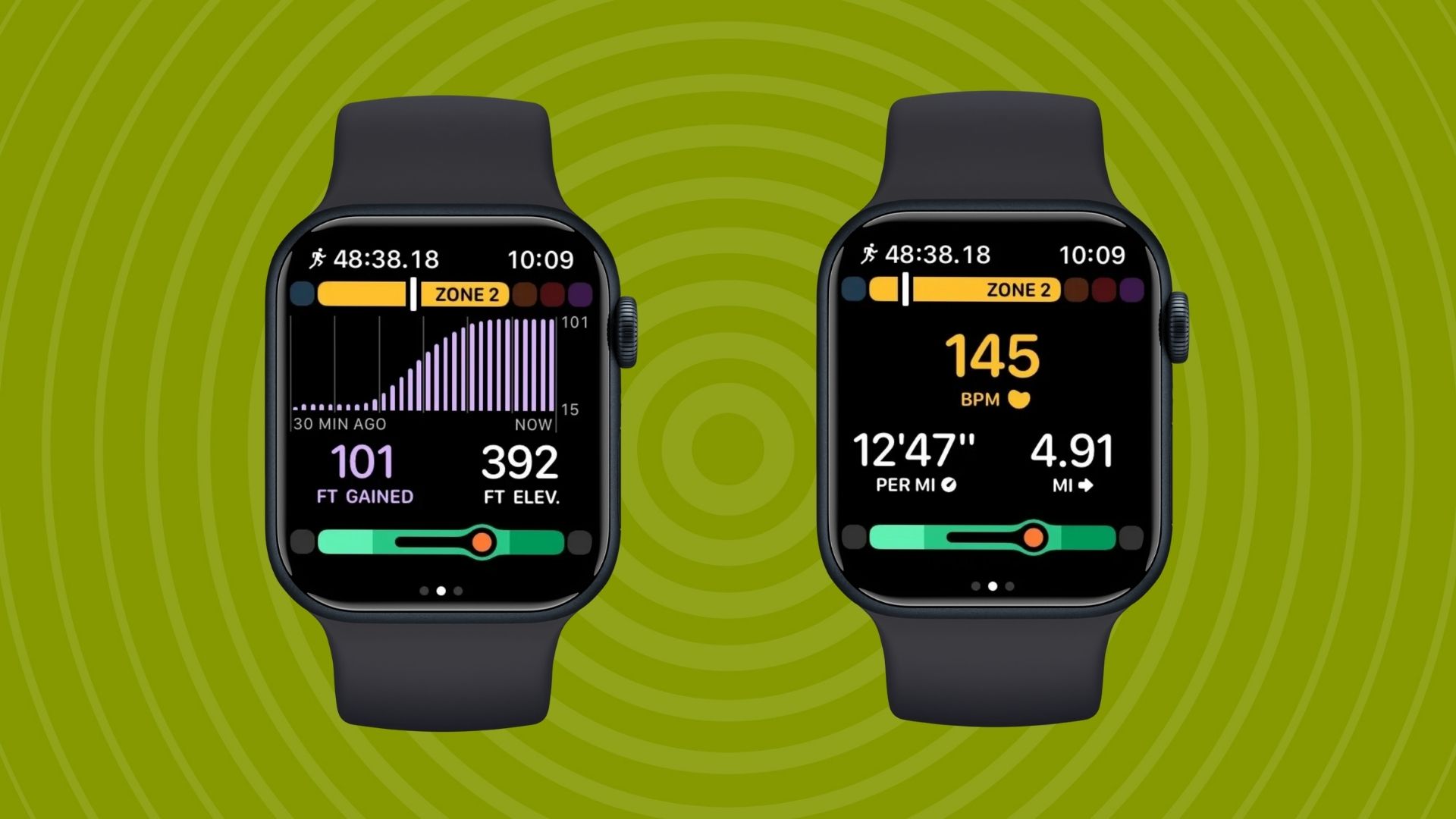
A former Apple Watch App of the Year winner, Gentler Streak is an app for workouts, well-being, and sleep with a focus on a softer, lighter approach to health and wellness. It's designed to make regular exercise sustainable, with no guilt-edged streaks. It features sleep analysis, menstrual cycle tracking, activity, and more, with over 140 activities to choose from. You can see workouts and stats live on your wrist as you go, with real-time tracking of heart rates with a focus on not overdoing it.
Download from App Store (Free)
Headspace
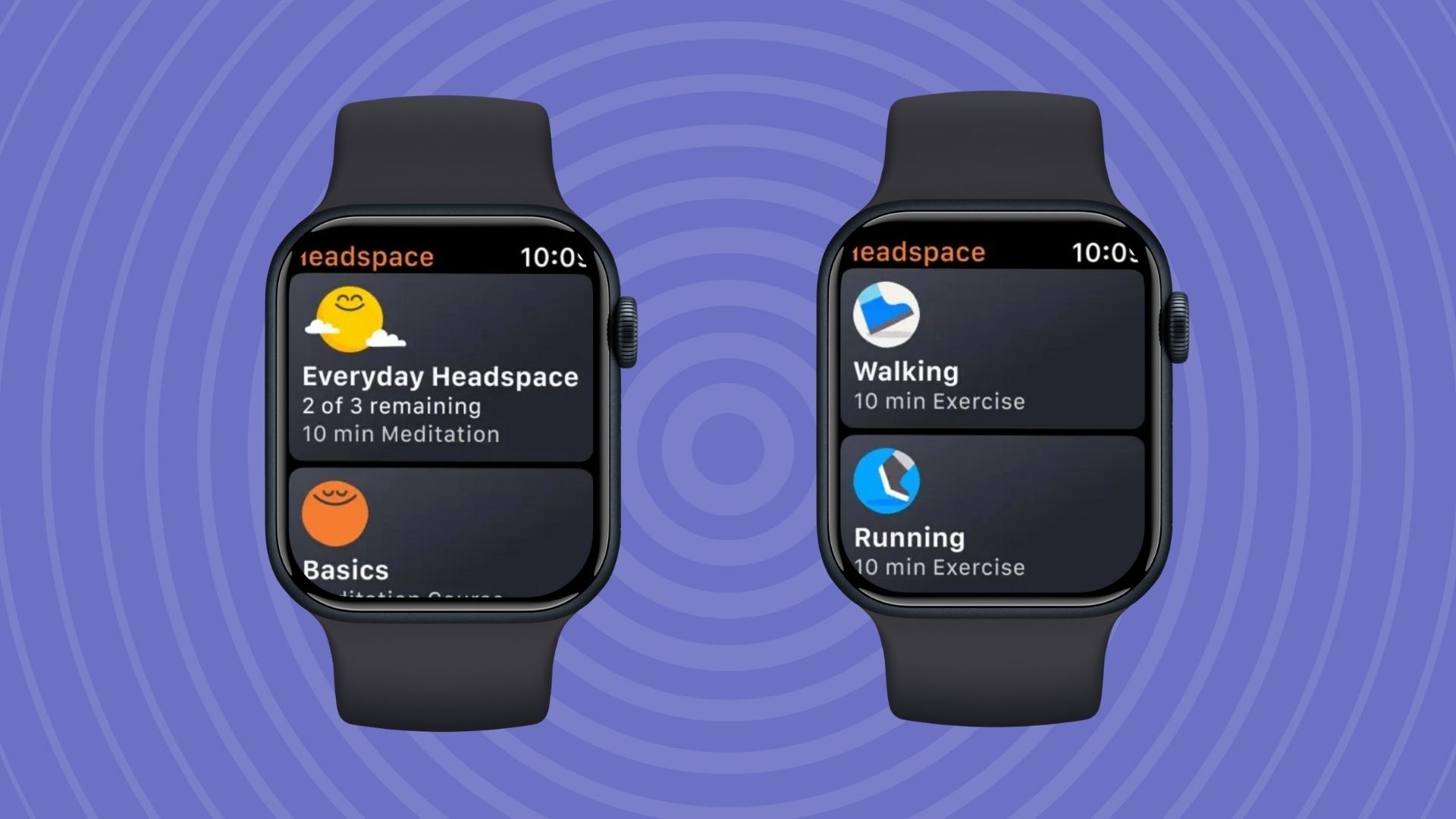
Headscape is another household name and a formidable app for everyday meditation and mindfulness. It features quick-hit sessions for emergencies or when you have a spare five minutes, as well as guided courses, including a 365-day plan. On Apple Watch, you can find and start Headspace programs and control audio right on your wrist, eliminating your phone as a distraction during those moments of mindfulness.
Download from App Store (Free)
Flo Period & Cycles Tracker
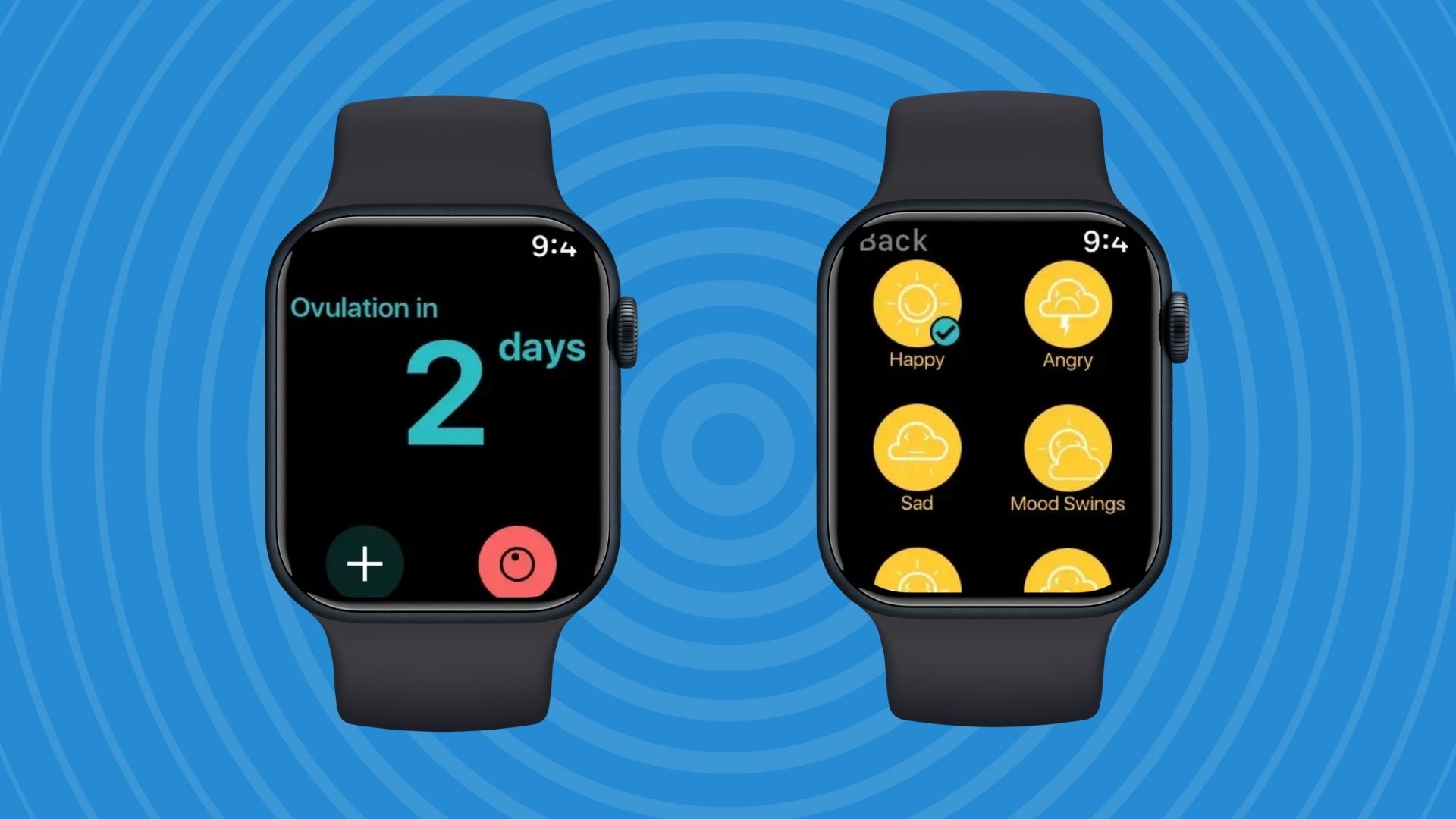
Flo is a period and cycle tracker that can help you predict your period, understand your symptoms, and even track your pregnancy.
You'll get monthly cycle reports, symptom predictions, and more. On your Apple Watch, see a quick glance countdowns to your ovulations and enter your mood with just one touch. The app also features a 24/7 virtual health assistant as well as articles, videos, and courses.
Download from App Store (Free)
Streaks
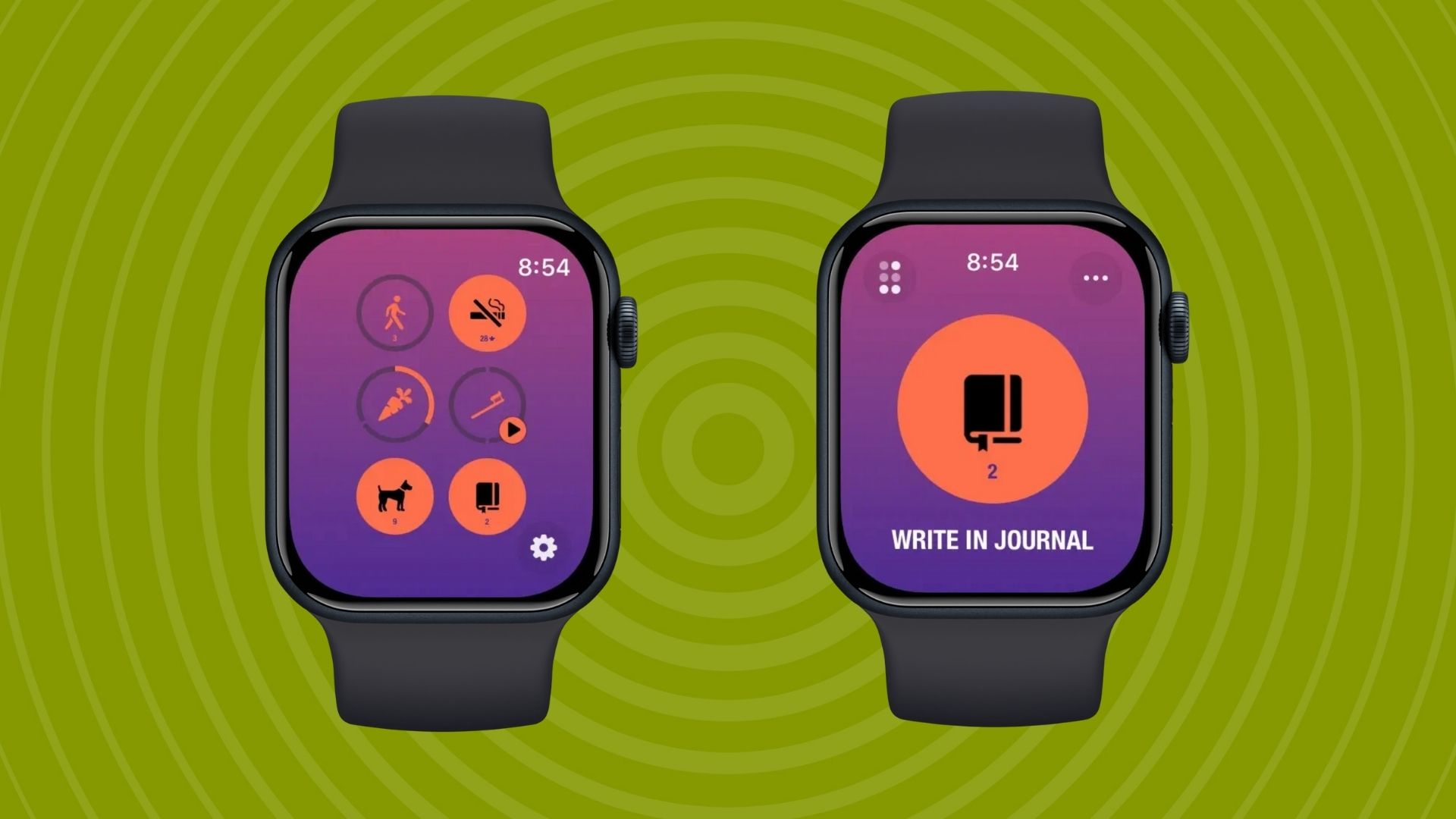
Streaks is a to-do list app that's all about building habits. An Apple Design Award winner, you can create up to 24 tasks a day that you want to complete, ticking them off as you go and building habits over time. That can be as simple as brushing your teeth or taking the dog out, or heftier undertakings like quitting smoking. There are 78 color themes and 600 task icons, with customization for how often tasks need to be done and repeated.
Download from App Store ($5.99)
Water Tracker
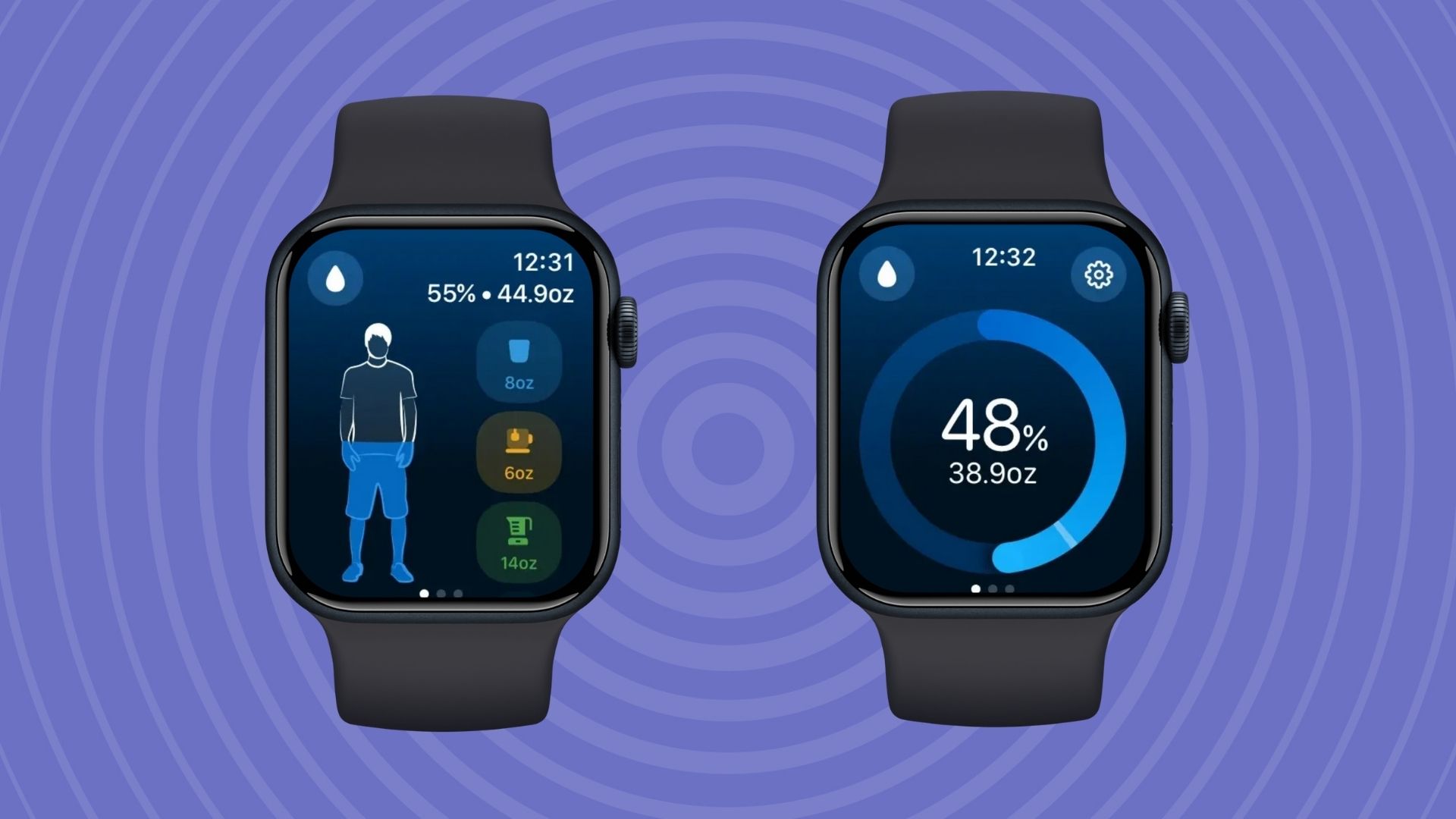
Water Tracker is a water drinking reminder app for Apple Watch that aims to make staying hydrated fun and attainable. The app helps you track your water intake, reminding you to drink regularly. The standalone Apple Watch app lets you quickly add hydration as you drink and track your progress throughout the day. You can even earn achievements and share them with others!
Download from App Store (Free)
Sleep Cycle
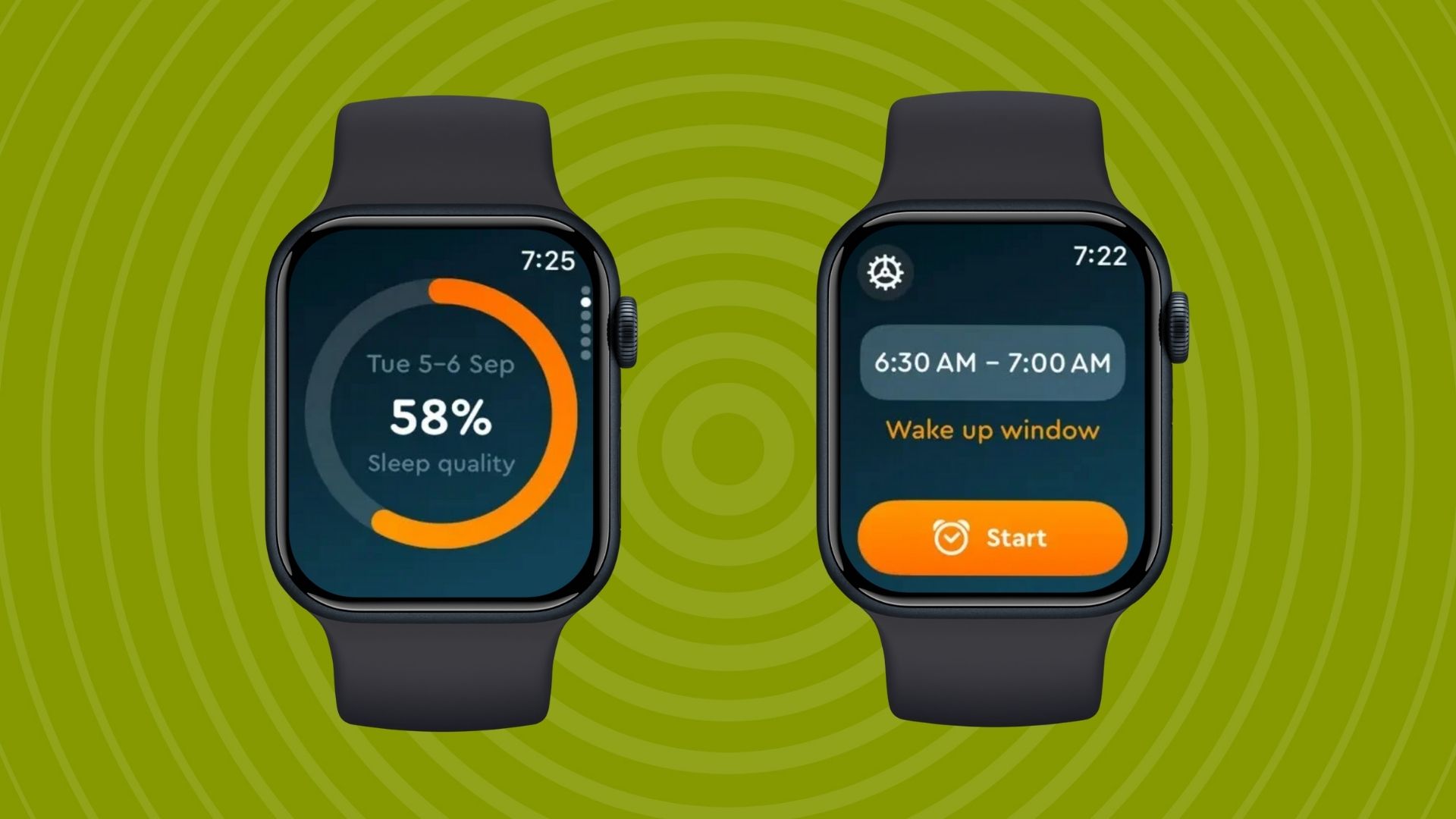
Sleep tracking is a strength of Apple Watch, but if you want to take your sleep tracking to the next level then Sleep Cycle is the answer. Sleep Cycle tracks your sleep to give you a sleep quality score, and can highlight instances like snoring and sleep talking. It also features a library of relaxing sounds. Get quick-glance sleep scores on your Apple Watch, set your wakeup window, and start your sleep directly from your wrist.
Download from App Store (Free)
Heart Analyzer
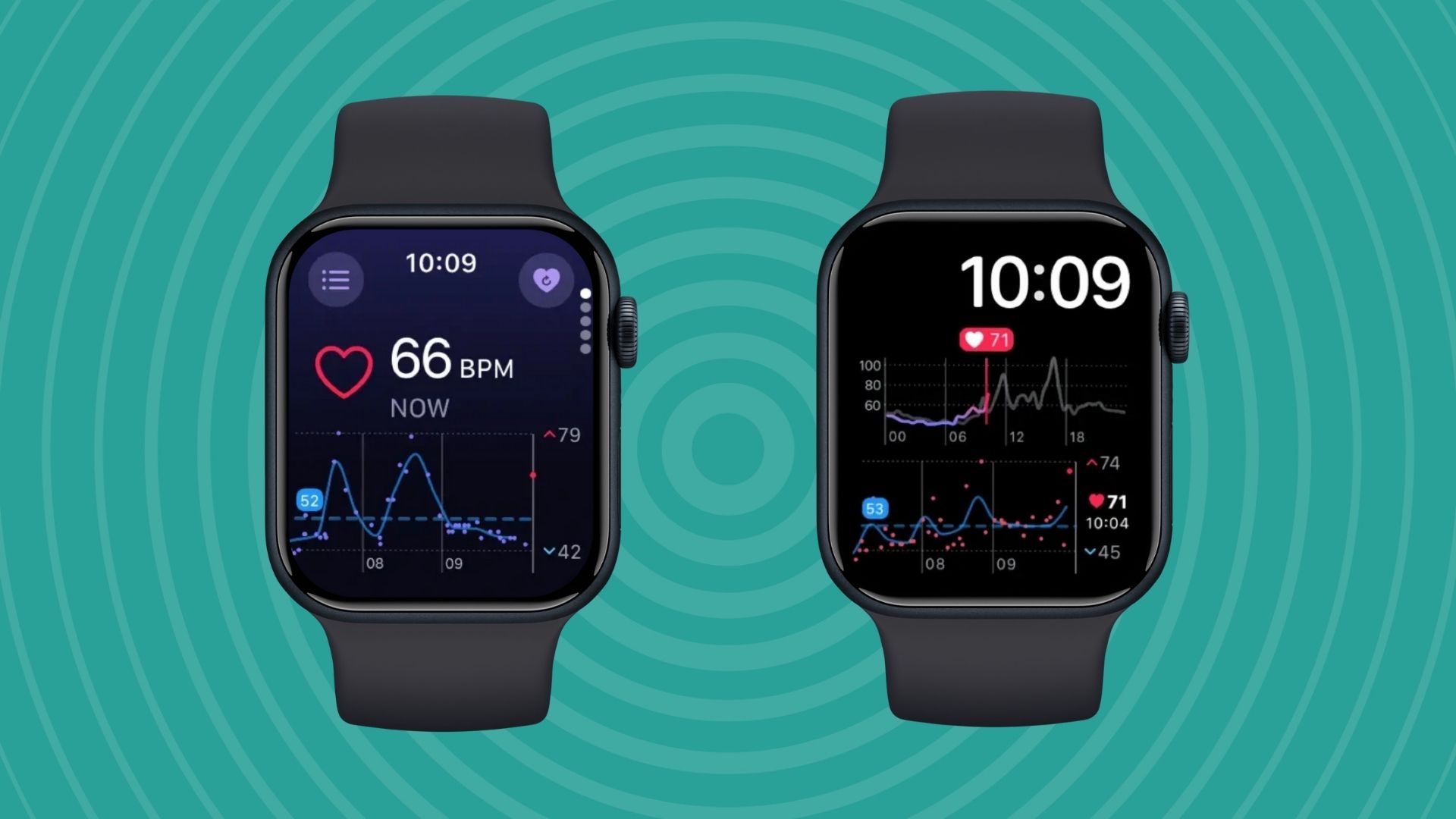
Heart Analyzer is an advanced heart health app that gives you a better understanding of your heart health. You can see visualized data for your heart rate and other metrics, including at a glance on your Apple Watch. The re-designed Watch app shows you heart rate information across your day, with other charts for movement, exercise, cardio, blood oxygen, and more. You can also see more detailed breakdowns of your heart rate during workouts, and there are customizable complications for your Apple Watch face.
Download from App Store (Free)
Best Apple Watch apps: Travel
Citymapper
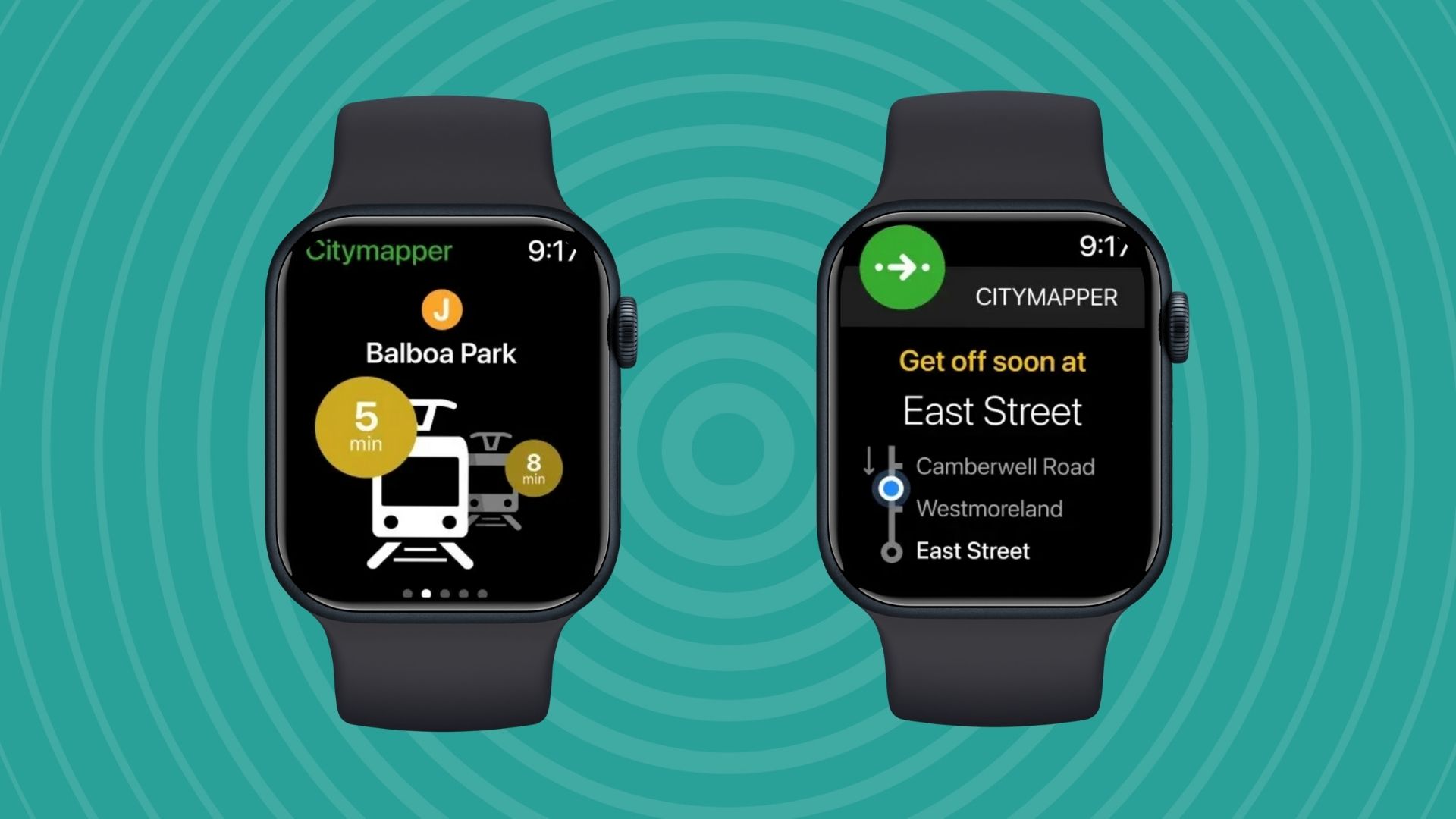
Citymapper is a popular commuting app that will have you navigating any city like a pro. You can use city mapper to travel around cities with turn-by-turn directions including public transport, walking, and cycling. It'll find the best route for you combining all modes of transport, with live wait times and ETAs for buses and more. On your wrist, follow live directions and quickly set routes for favorite destinations like home and work.
Download from App Store (Free)
Flighty
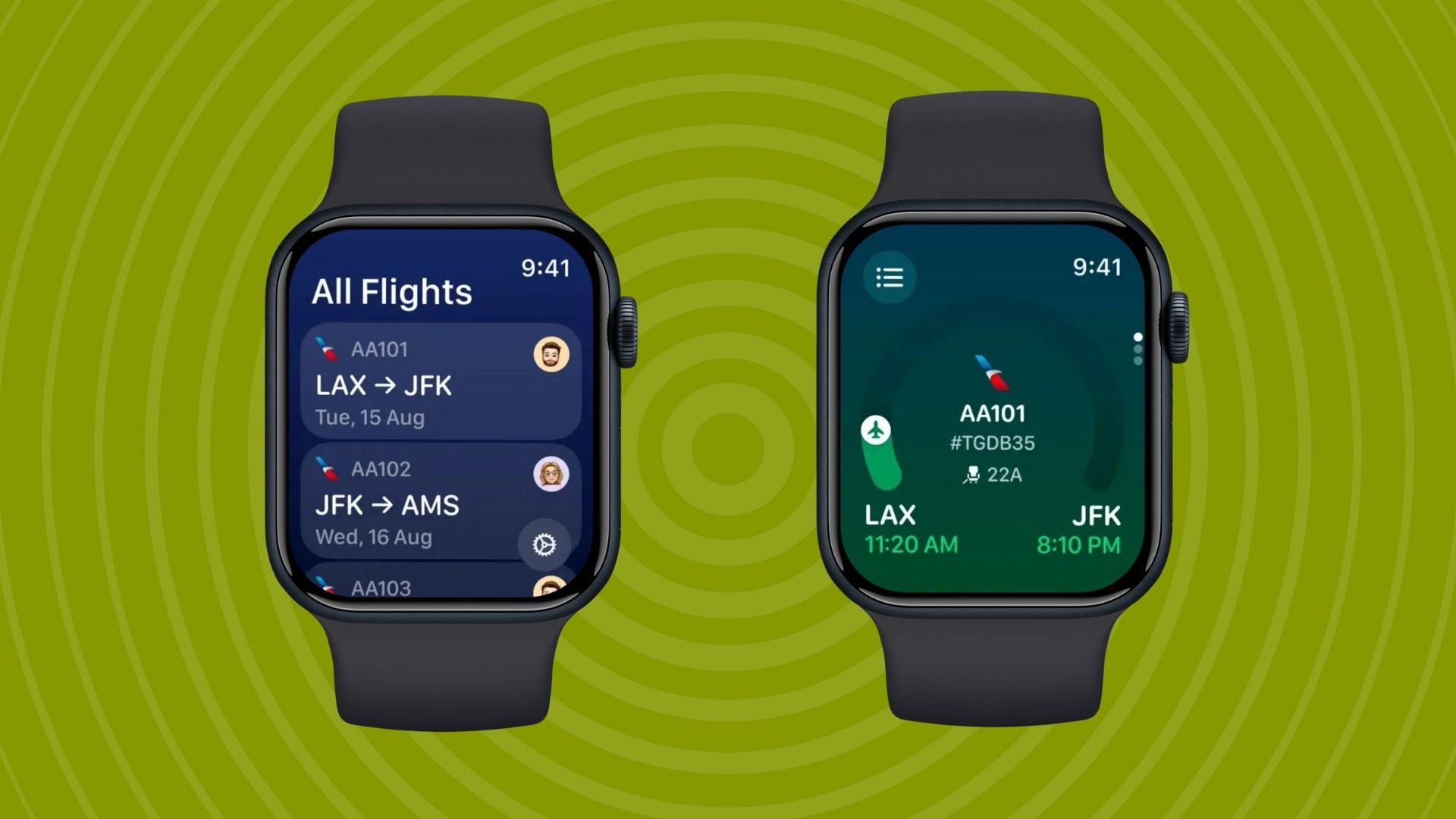
Flighty is the ultimate iPhone and Apple Watch flight-tracking app that gives you flight status updates, cancellation notifications, and more. Whether you're the ultimate airplane enthusiast or a frequent flyer, Flighty is an indispensable travel companion for the skies. Flighty will even tell you why your flight is delayed, and it comes with Apple Watch complications so you can customize your Apple Watch face with flight data.
Download from App Store (Free)
Slopes: Ski & Snowboard
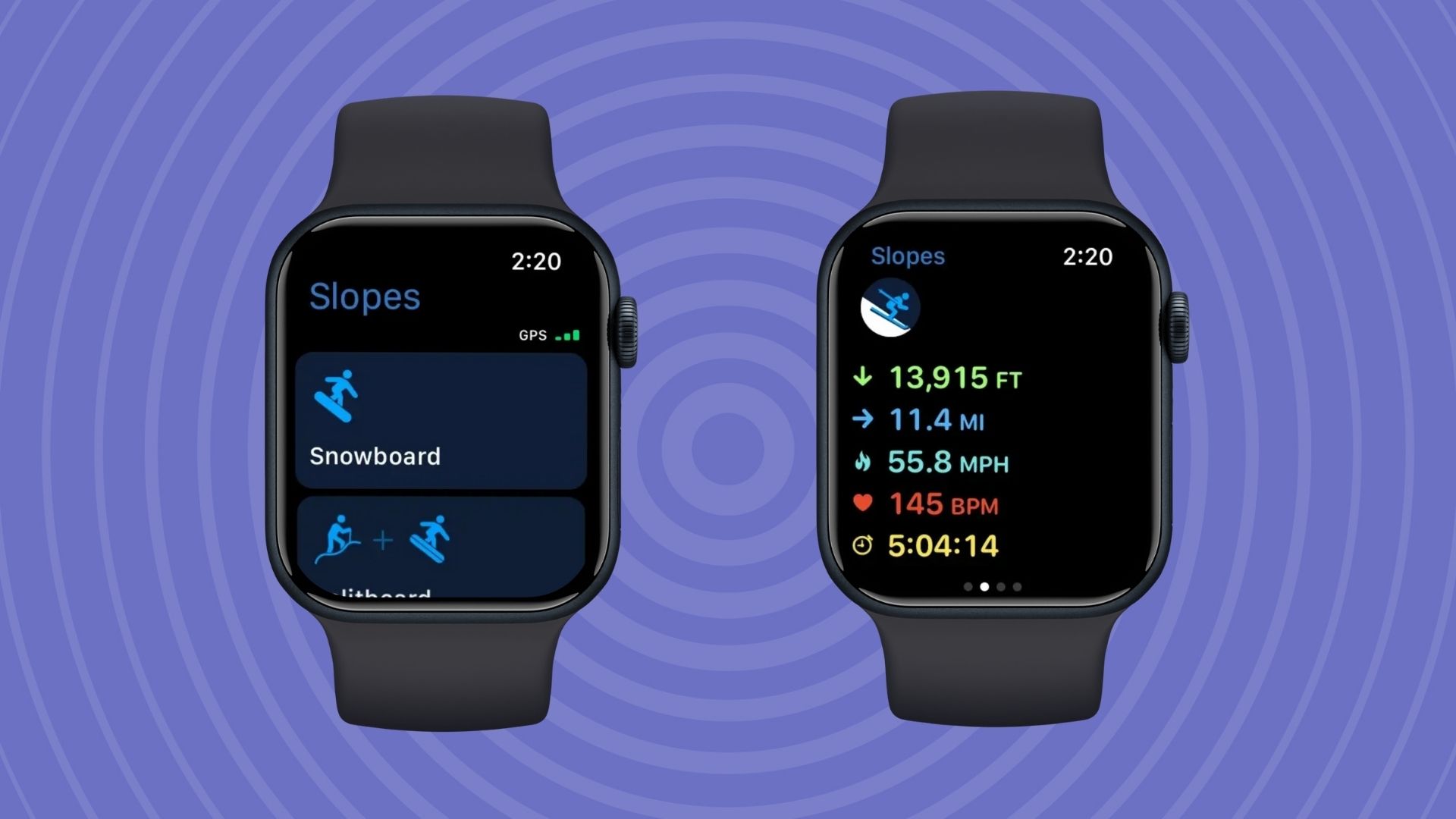
Slopes is a skip and snowboarding companion that can record your mountain sessions in depth. It features trip planning, interactive resort maps, and smart workout recording that will cover your heart rate, workout metrics, distance and altitude, which isn't included in the standard workout app. You'll get in-depth data about your performance including speed, vertical, and run times to help you hone your craft. It even includes auto-detection for breaks like ski lifts and uphill segments. Use the Apple Watch app to see real-time data and pause your workouts on the fly.
Download from App Store (Free)
iTranslate Converse
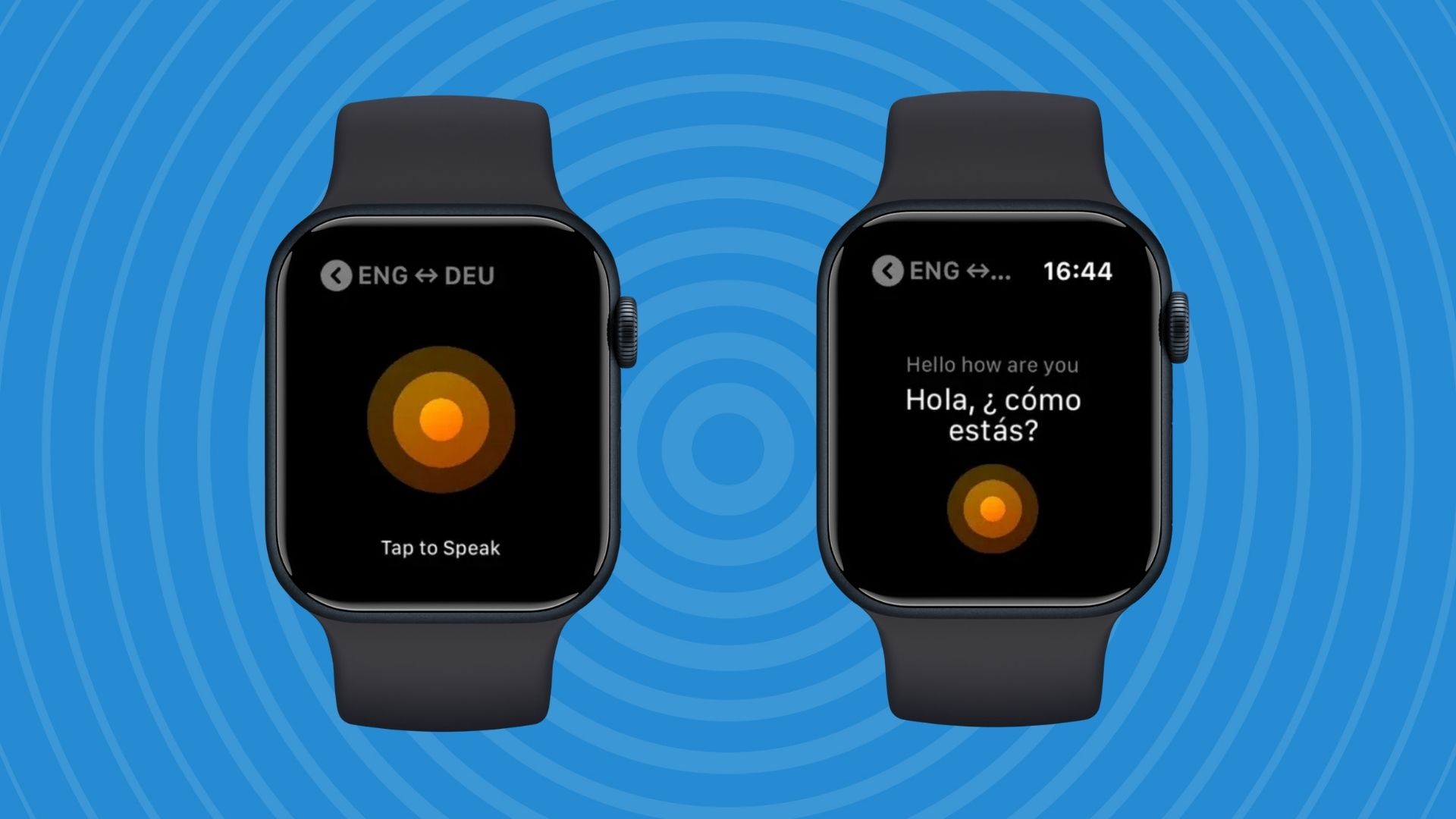
iTranslate Converse is another award-winning App Store title that provides real-time two-way translation. It can offer natural conversations in 38 languages, automatically detecting the correct language so you don't waste time scrolling. You can use your Apple Watch microphone to listen and translate even without your iPhone, and you can even see transcripts for every voice conversation after the fact.
Download from App Store (Free)
Google Maps
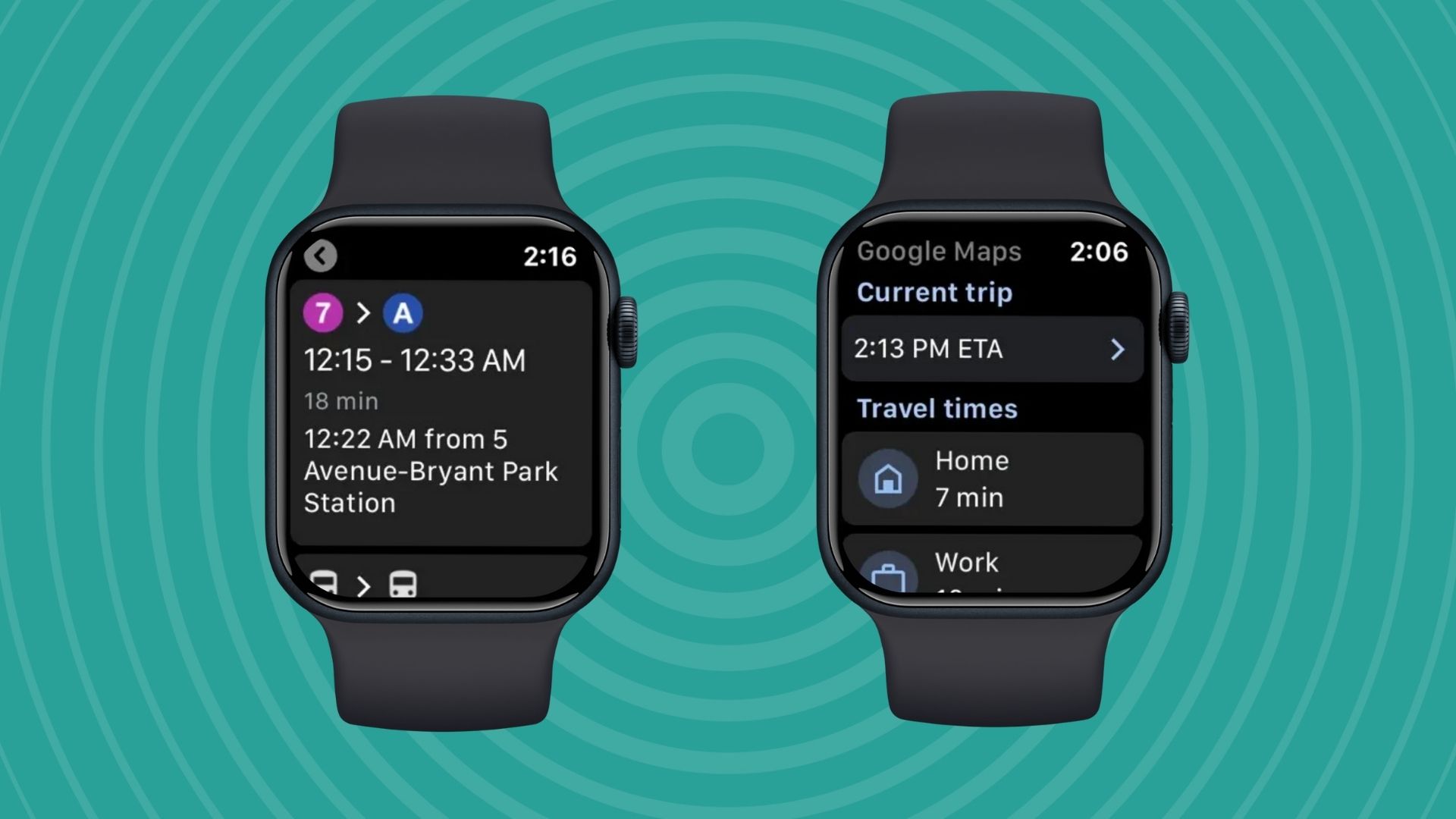
If you're a Google Maps user on iPhone then the Apple Watch companion app is essential. Much like Apple Maps, Google Maps on your Watch offers turn-by-turn directions, navigation for public transport, and more. Take advantage of all Google's other features including offline maps, street view, and navigation inside big spaces like airports and stadiums.
Download from App Store (Free)
Best Apple Watch apps: Entertainment
Overcast
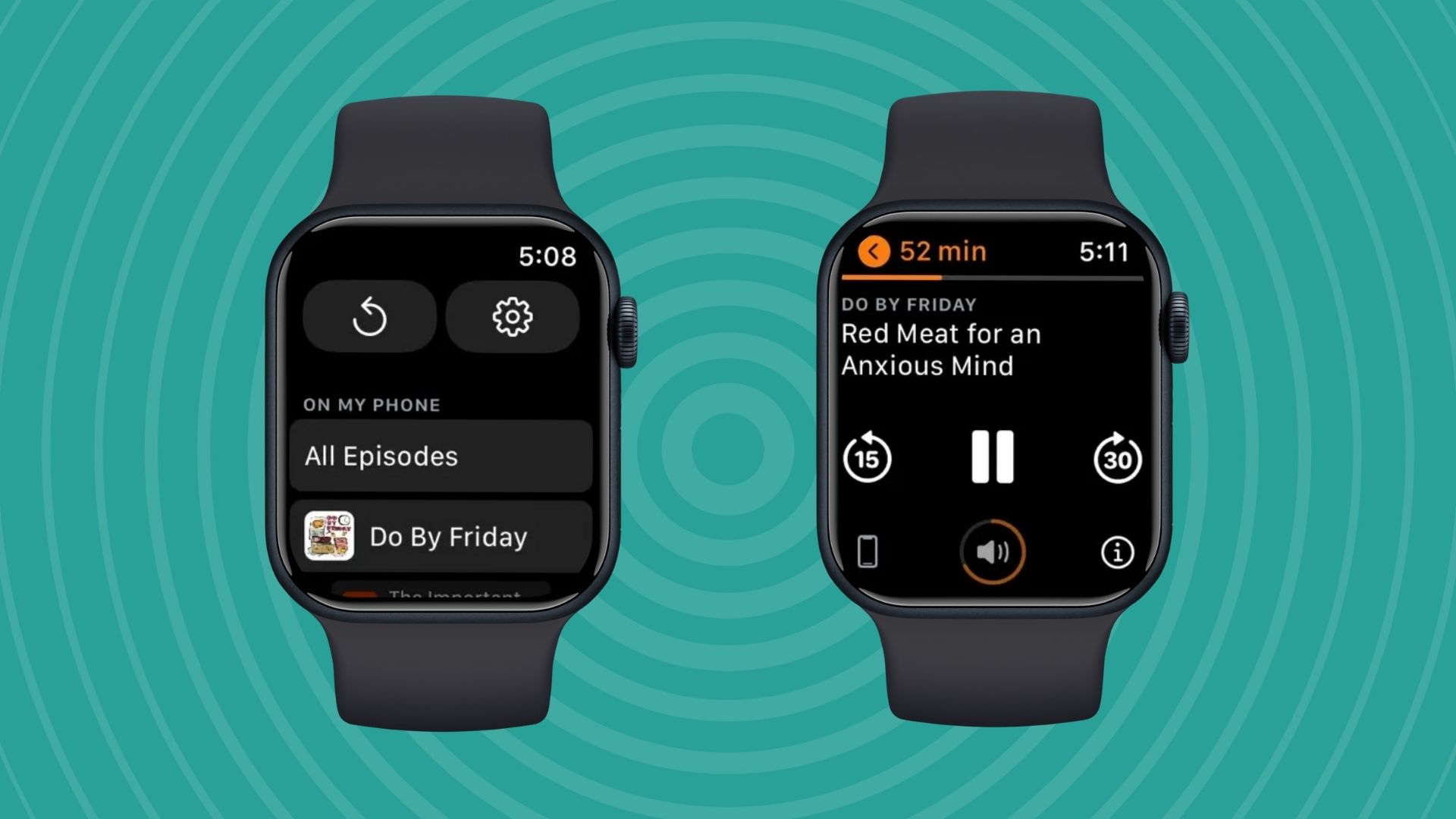
It's no secret that the Apple Podcasts app leaves a lot to be desired, and Overcast is unanimously understood to be the best alternative. With much better downloading and library controls than Apple, it also offers nifty features like Smart Speed to skip gaps, Voice Boost to remaster audio, and custom playlists. The Apple Watch app gives you quick access to episode and your playback controls, as well as support for standalone playback and cellular streaming.
Download from App Store (Free)
Spotify
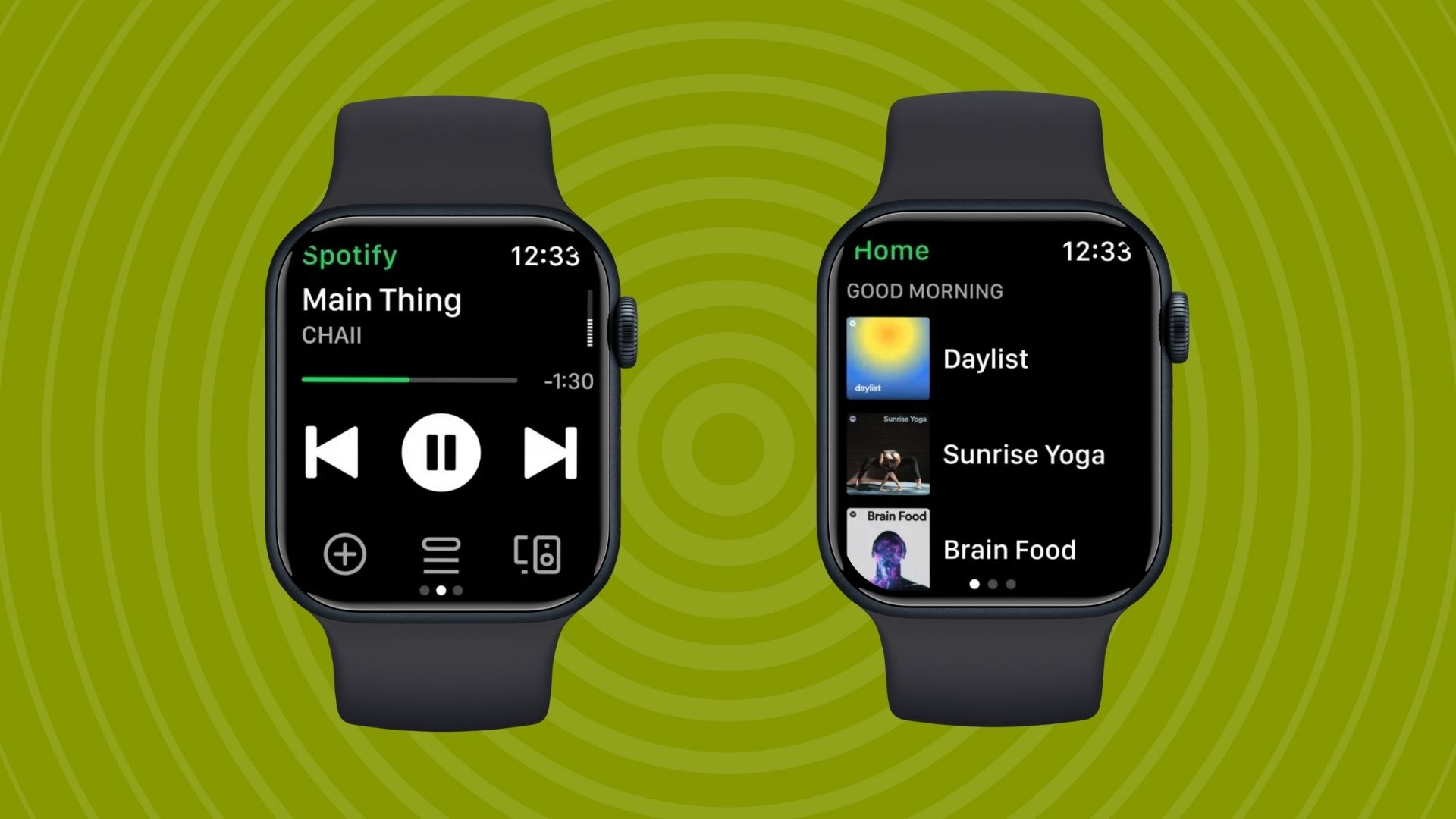
As with Google Maps, anyone using Spotify as an alternative to Apple Music will also want the Spotify Apple Watch app. Like Apple Music, it offers on-wrist listening controls that let you pause and play music, skip tracks, and more. You can scroll through your playlists and Discover page, control playback to devices like your earbuds, and control podcast speed on the fly.
Download from App Store (Free)
Audible
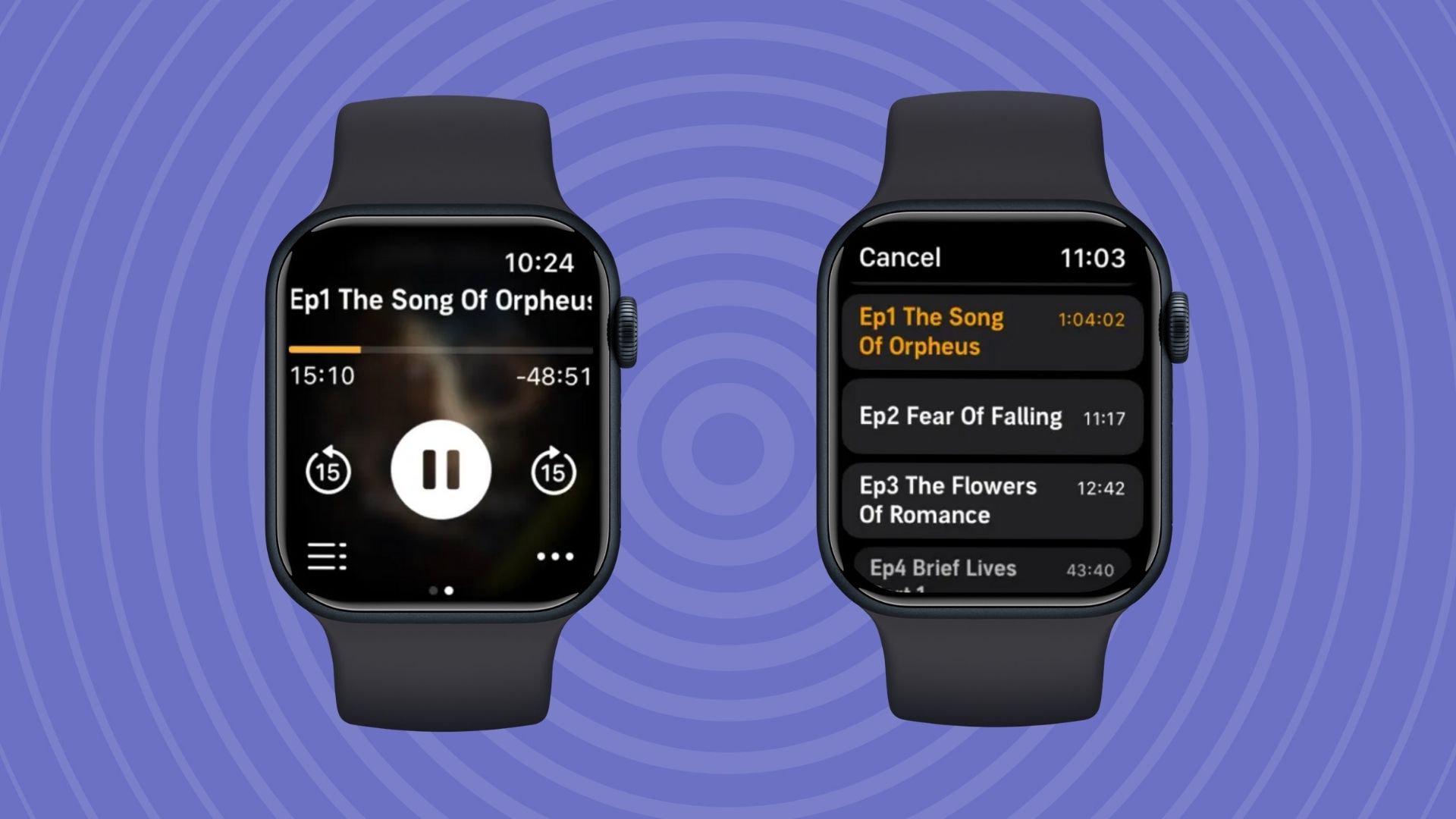
Audible is the top audiobook app on the App Store and also includes some podcasts too. If you listen to audiobooks via Audible, the Apple Watch app will give you access to listening and playback controls, as well as scrolling through chapters, playback settings, and your library of titles, you can even delete downloaded titles from your library directly on your wrist.
Download from App Store (Free)
Box Box Club
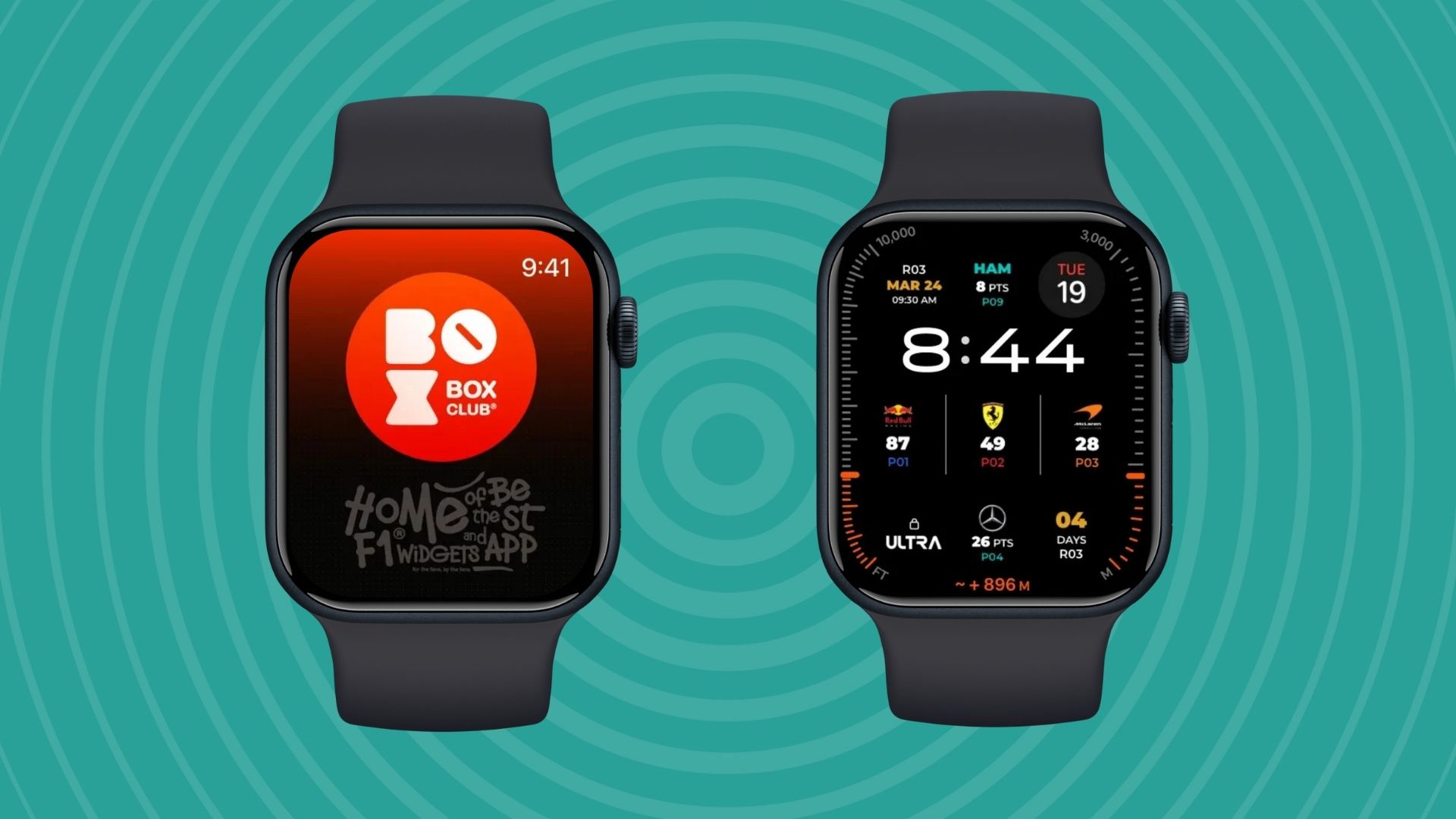
Box Box Club is a Formula 1 fan's dream. It features an F1 race calendar, season stats, driver tracking, and a multitude of widgets to give you quickly digestible information ahead of and during race weekends. On the Apple Watch app, you can create entire custom Apple Watch faces with F1 complications like the date of the next race, Constructors points, and more.
Download from App Store (Free)
Best Apple Watch apps: Essentials
CARROT Weather
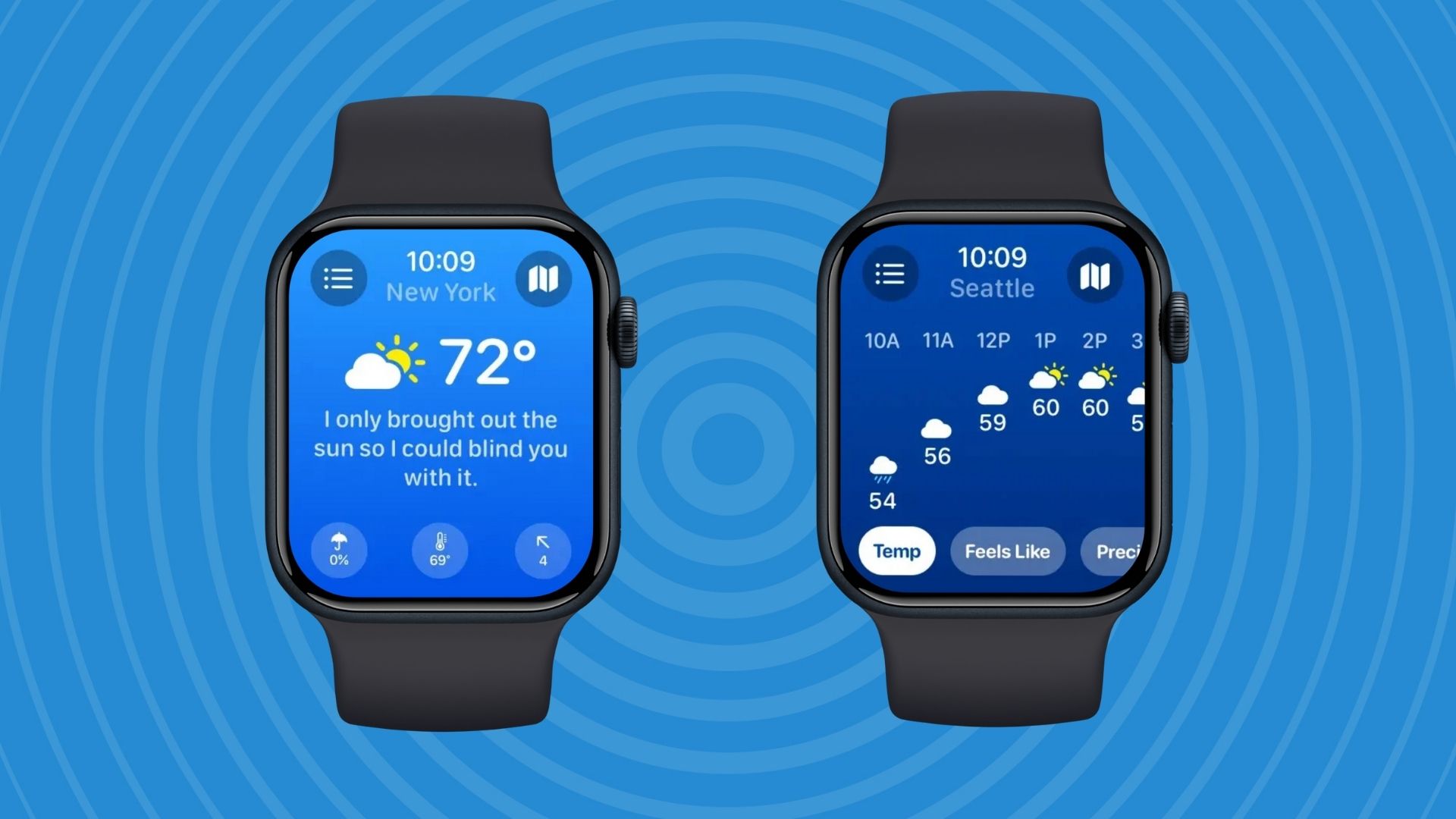
An Apple App of the Year award winner, CARROT weather is a potent but occasionally silly weather app that draws on a wealth of weather information to give you detailed weather updates where you live. It includes precipitation, alerts, and even lightning strikes in some places. It features rich satellite imagery and a wealth of data. Its secret weapon? It features an AI that you can customize to deliver weather updates in your personality of choice. Choose from five ranging from "professional" to "overkill." Just be warned, "overkill" does exactly what it says on the tin.
Download from App Store (Free)
Cheatsheet
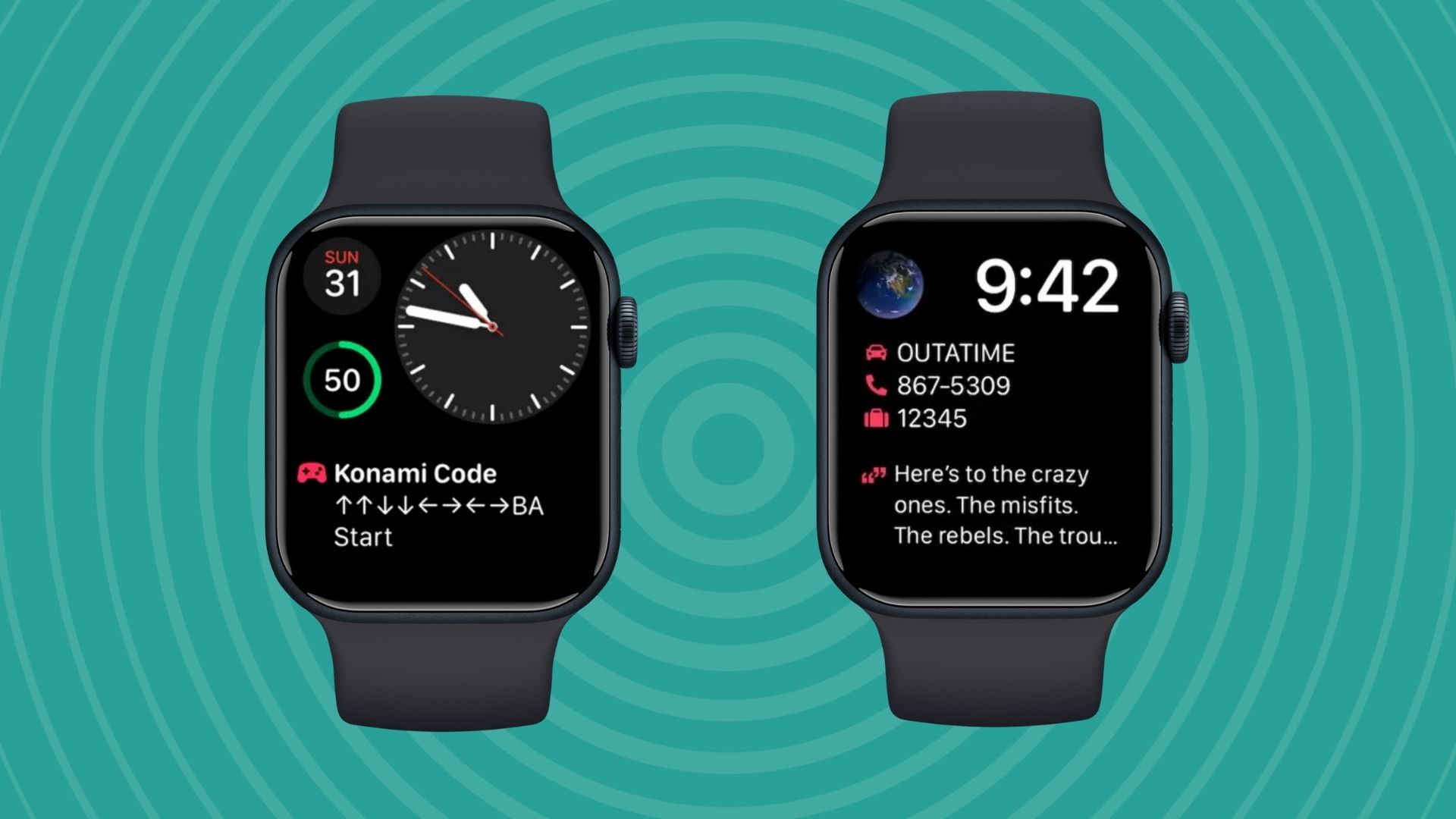
It's hard to pick a favorite from so many great apps, but Cheatsheet is definitely a contender. This app lets you store all sorts of important information on your wrist for quick and easy access. That could be a phone number, a building access code, or even cheat code inputs to your favorite retro video game. Cheatsheet 5 just dropped, which lets you edit on the Apple Watch. For anyone who needs quick access to important information (not passwords), this app is a true life hack and an absolute game-changer.
Download from App Store (Free)
PCalc
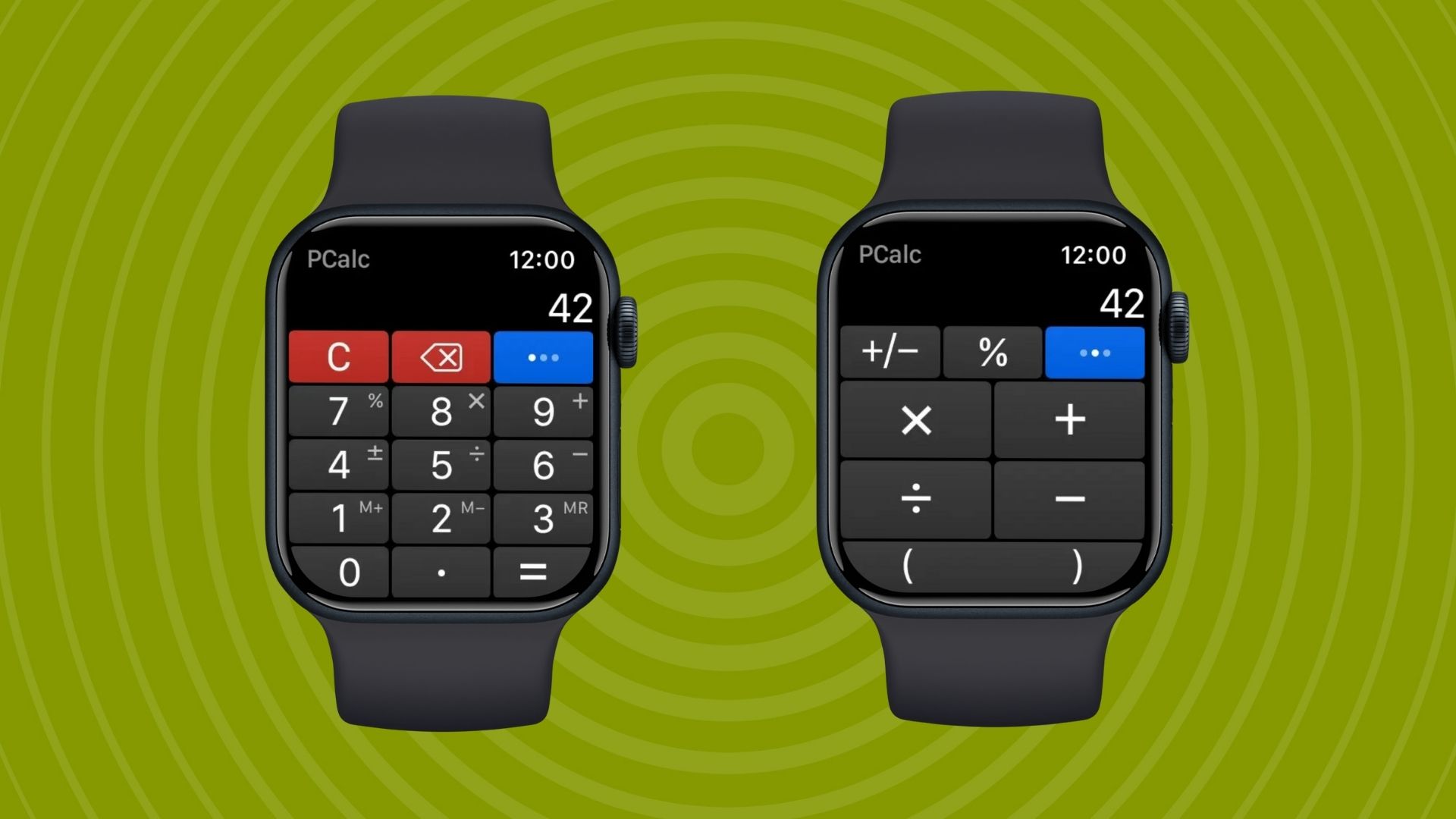
PCalc is an all-singing, all-dancing scientific calculator for iPhone and iPad, replete with an Apple Watch companion app. You can do a vast array of calculations right on your wrist, inputting data, using functions, and even doing trigonometry. It also has a built-in conversion function and a tip calculator.
Download from App Store ($9.99)
Authy
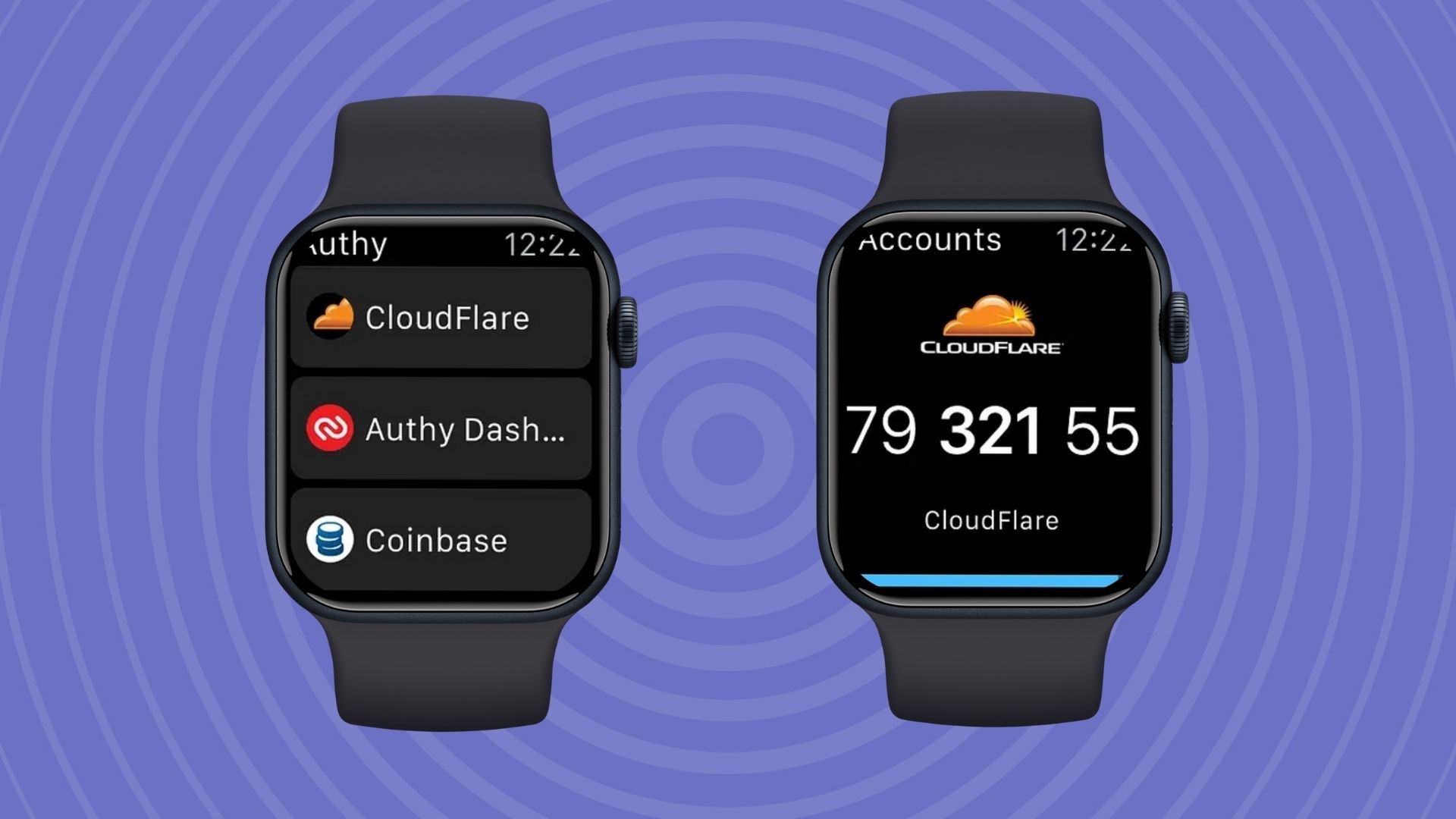
In the age of two-factor authentication, accessing an innumerable number of codes for all your various secure services is a massive pain. Authy is a brilliant authentication app, complete with an Apple Watch app that gives you quick access to codes on your wrist. No more fumbling through your phone or trawling through your inbox to find them. You can even use Authy to secure Bitcoin wallets with the likes of Coinbase and others.
Download from App Store (Free)
Best Apple Watch apps: Social media and communication
Lens
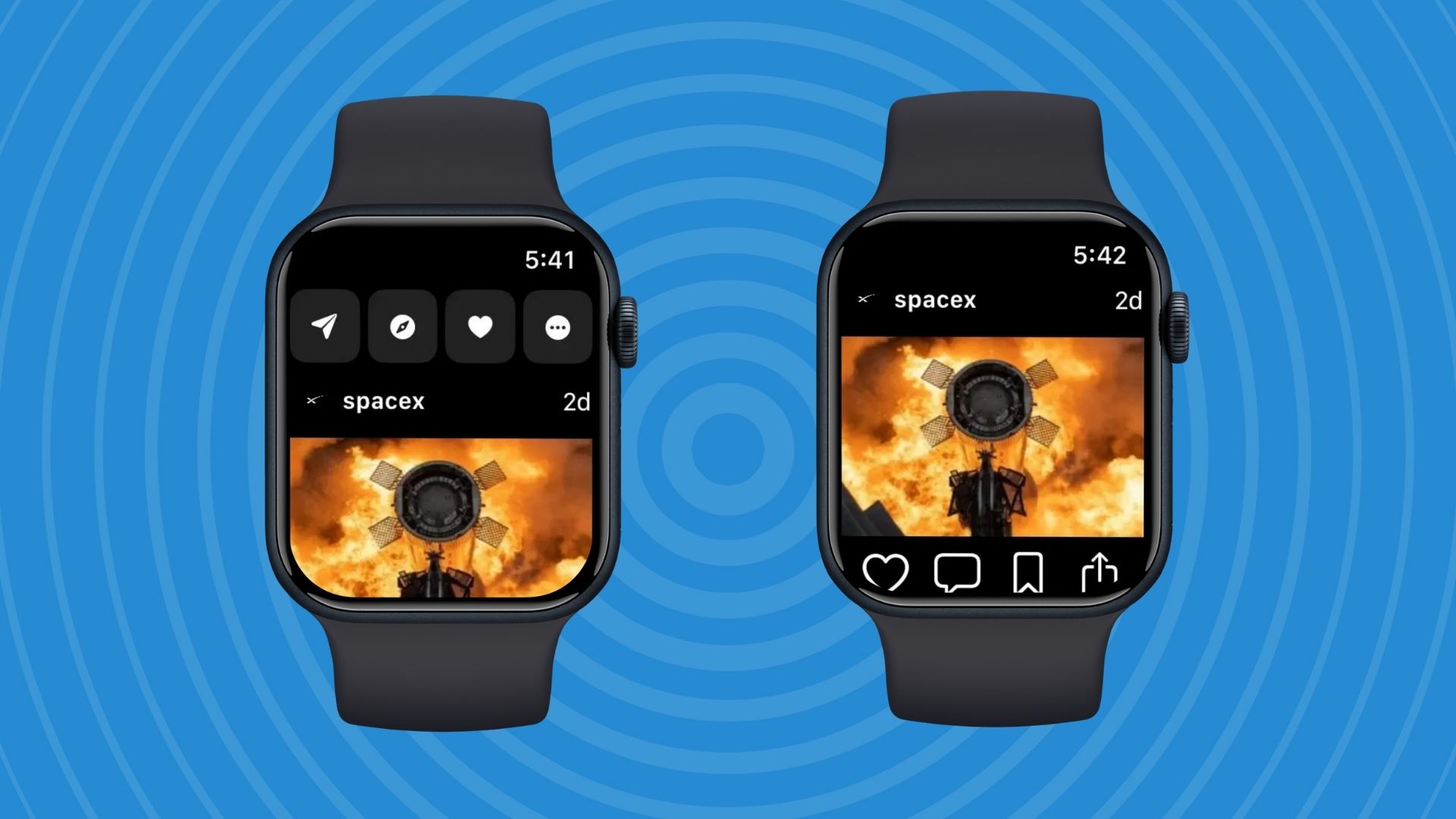
There aren't many social media apps for Apple Watch given its limited use and small display, but Lens is an app you can use to browse Instagram on your wrist. You can like posts, reply to messages, view comments, comment on other people's posts, and even watch videos. If you're a true Instagram addict, then this is just one more way to satisfy the craving.
Download from App Store (Free)
WatchChat 2
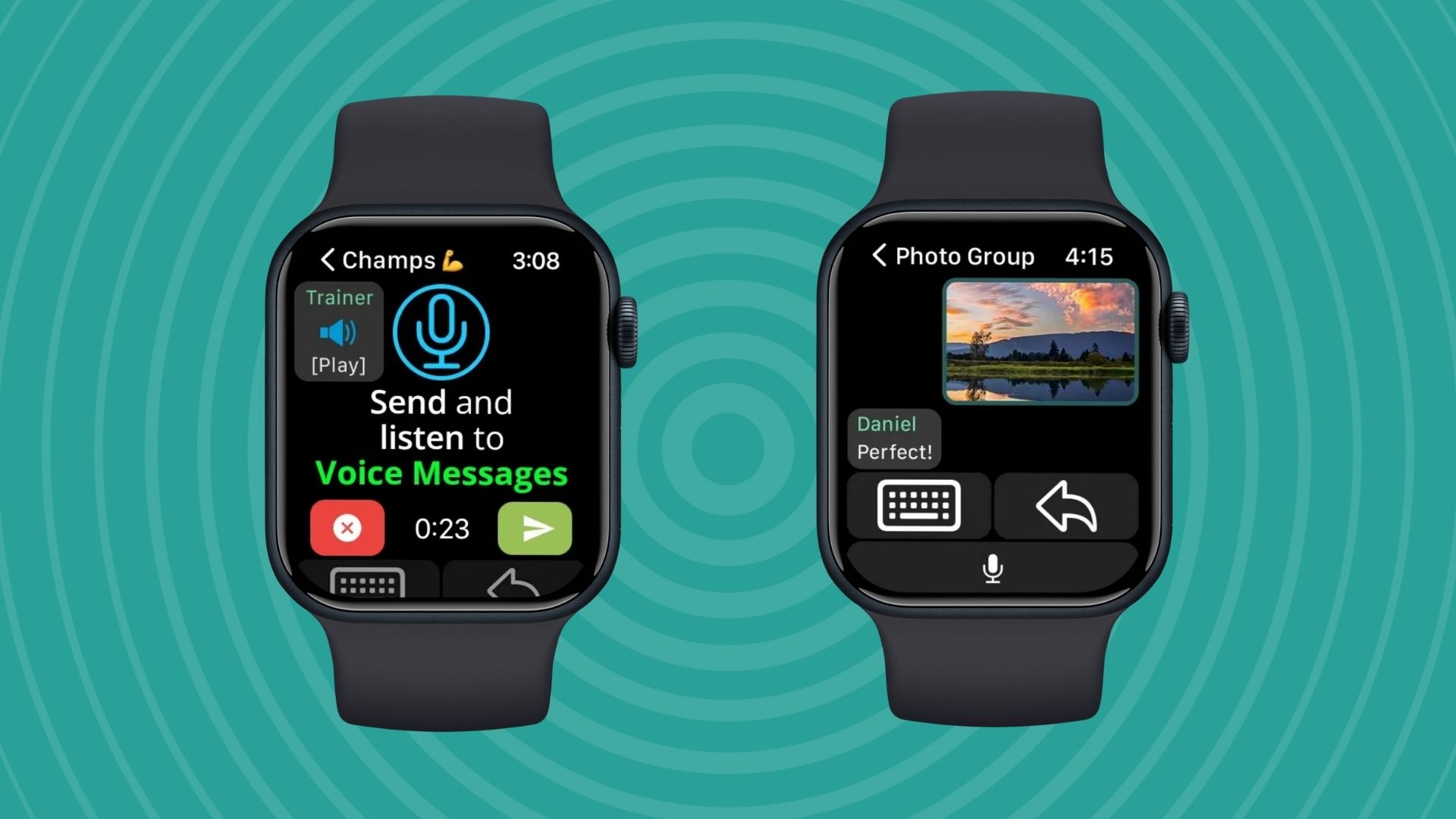
If WhatsApp is your communication mode of choice then WatchChat 2 is an indispensable Apple Watch app. It lets you use WhatsApp on your Apple Watch, send and receive messages, play and record voice messages, and even view photos in full HD. It supports multiple keyboard layouts including FlickType, and more. Never be out of the loop with WhatsApp always within arm's reach.
Download from App Store (Free)
Best Apple Watch apps: Games
Snake.io
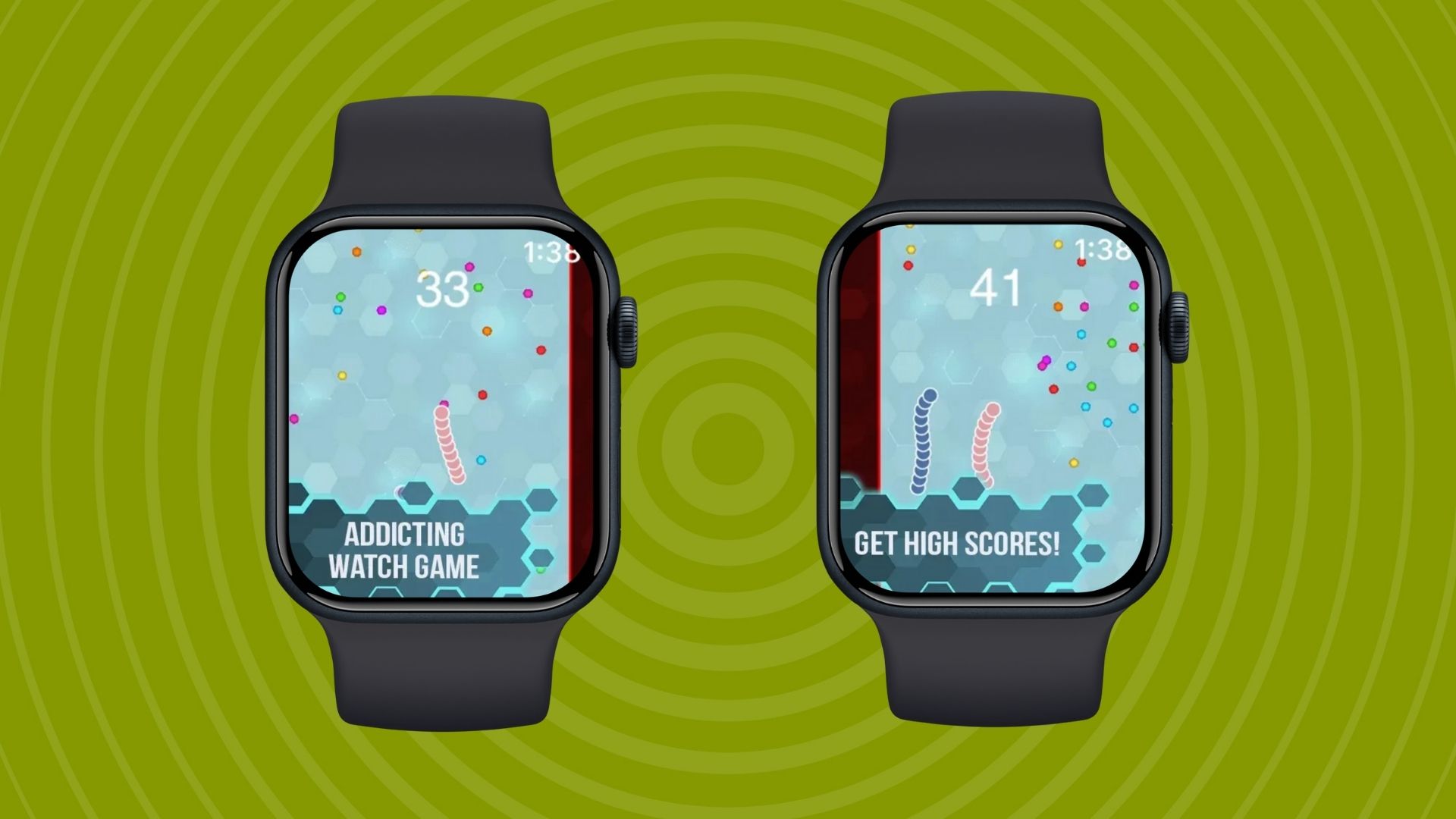
This is a modern take on the classic Snake title from Nokia. Control your snake as you pick up food and eat other snakes to become the biggest snake, fending off attacks from other foes. An offline title, there's never lag or connectivity issues, and Snake has been optimized for all the devices it runs on.
Download from App Store (Free)
Invaders Mini
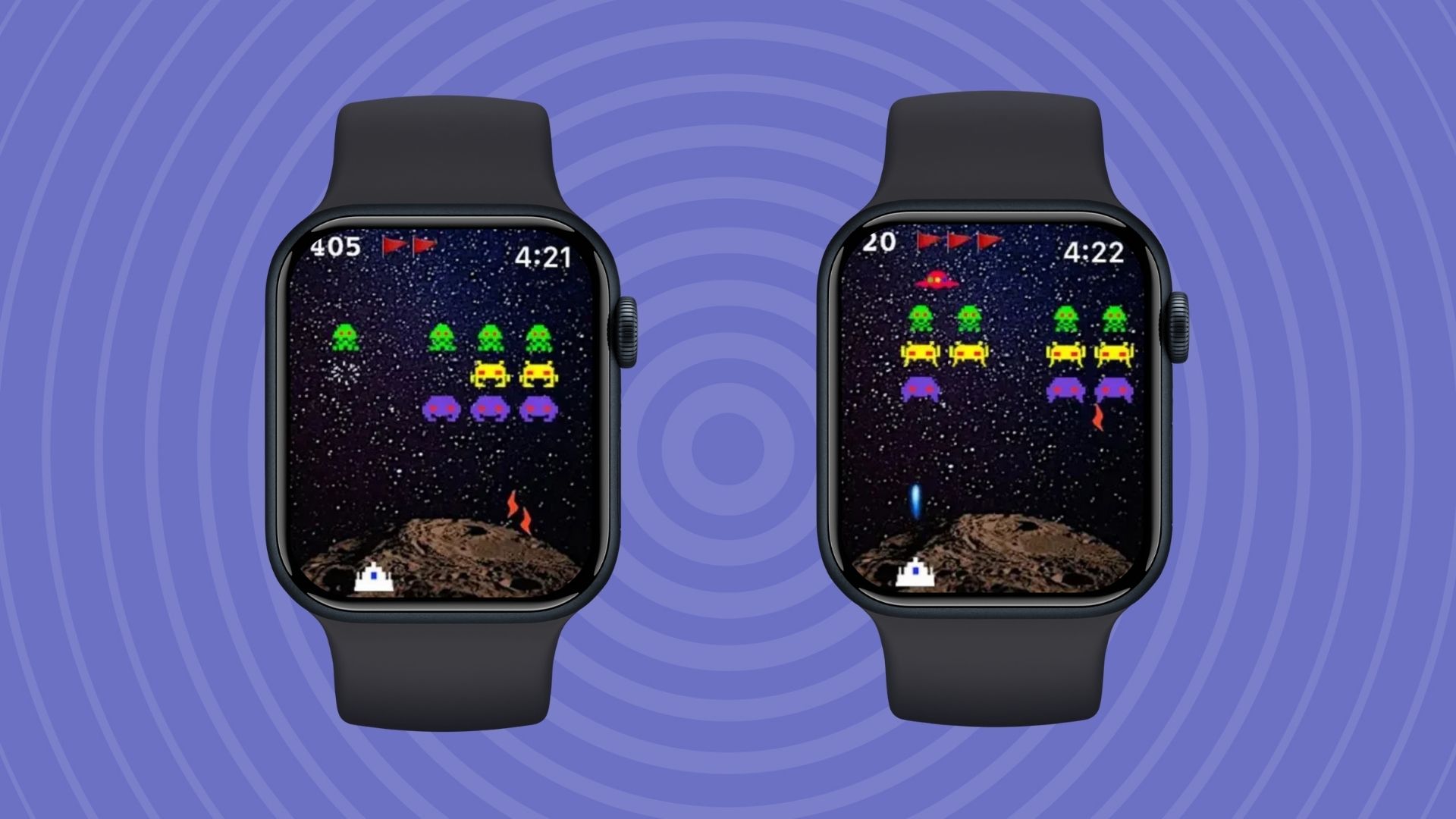
Another classic take, play this mini retro version of Space Invaders right on your wrist. It's a simple, fun arcade game with support for controls using your Apple Watch Touch Screen or your Digital Crown. Pay the $0.99 fee and you get a free iPhone game thrown in.
Download from App Store ($0.99)
Games for Watch
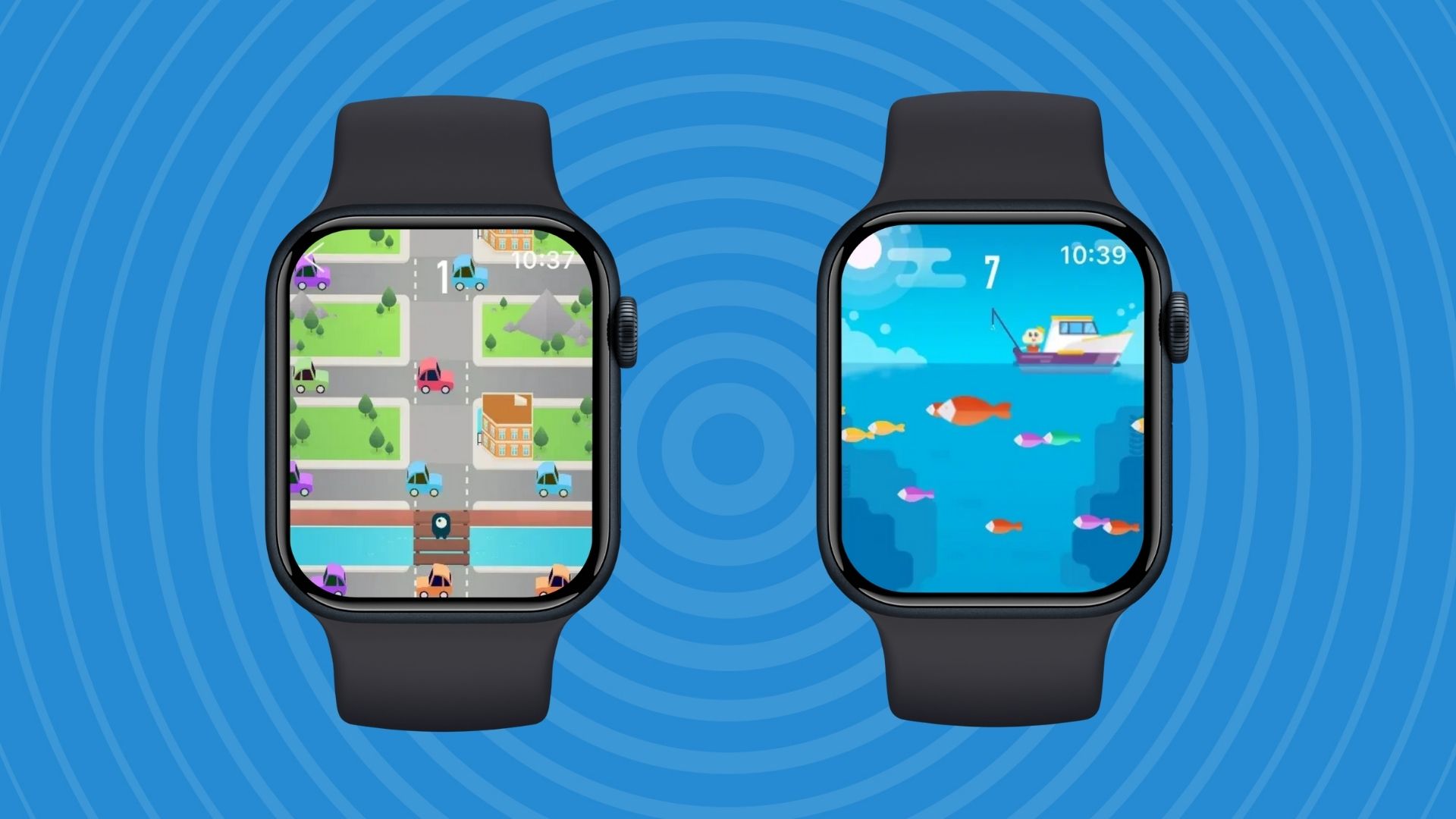
A fairly self-explanatory app, Games for Watch is a library of 10 free games for Apple Watch including Tic Tac Toe, Pass the Ball, and Pong. You can also buy premium titles like Sudoku, 2048, Hangman, and more.
Download from App Store (Free)
Peak - Brain Training
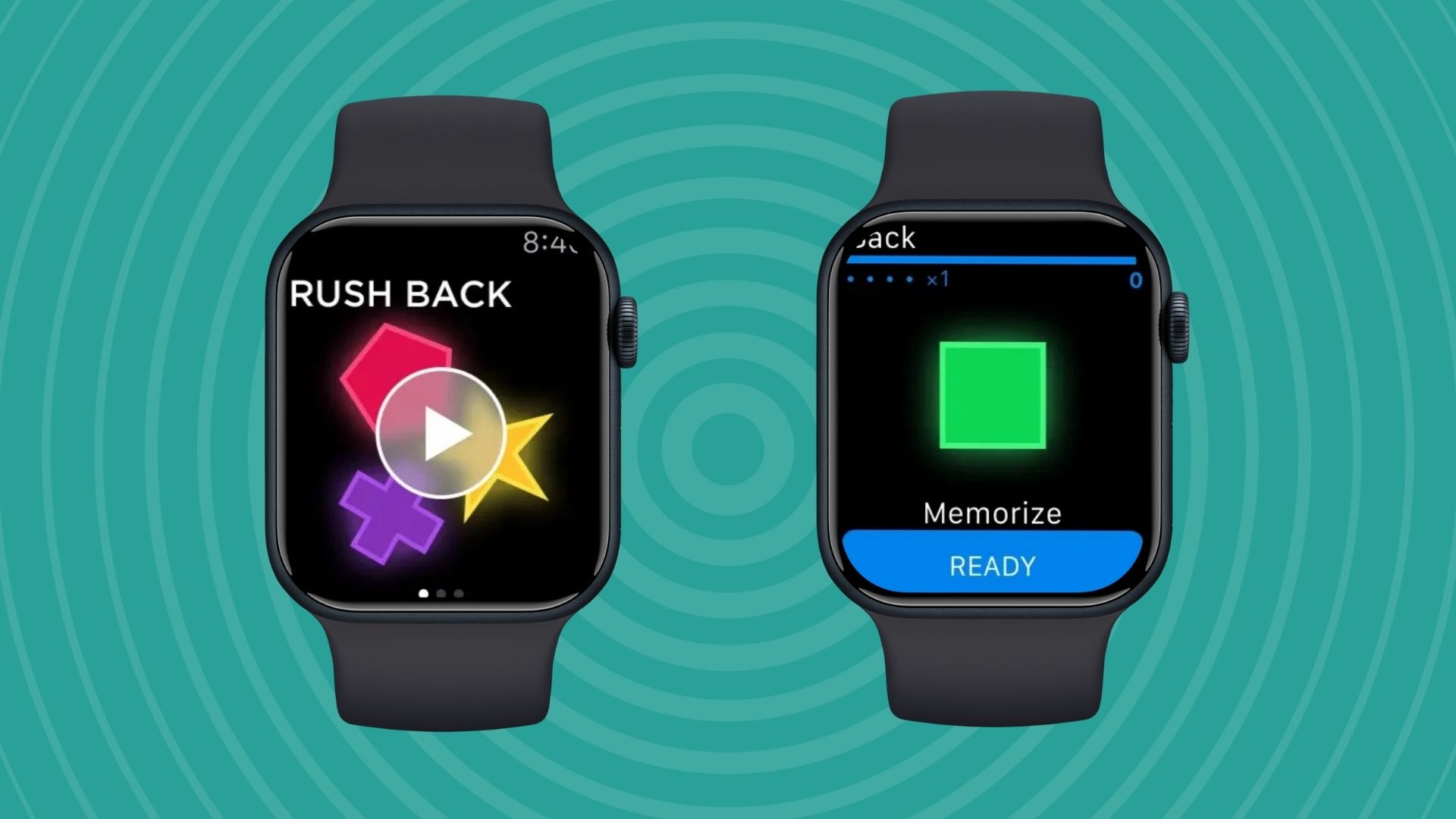
Peak - Brain Training is a pocket-sized brain training app for your wrist. It features more than 45 games in six different categories, with daily workouts to test and train your memory, attention, problem-solving, mental agility, language coordination, and emotional control. There are skill-based workouts and training modules, as well as a five-minute Coffee Break mode if you're short on time.
Download from App Store (Free)
Ping Pong
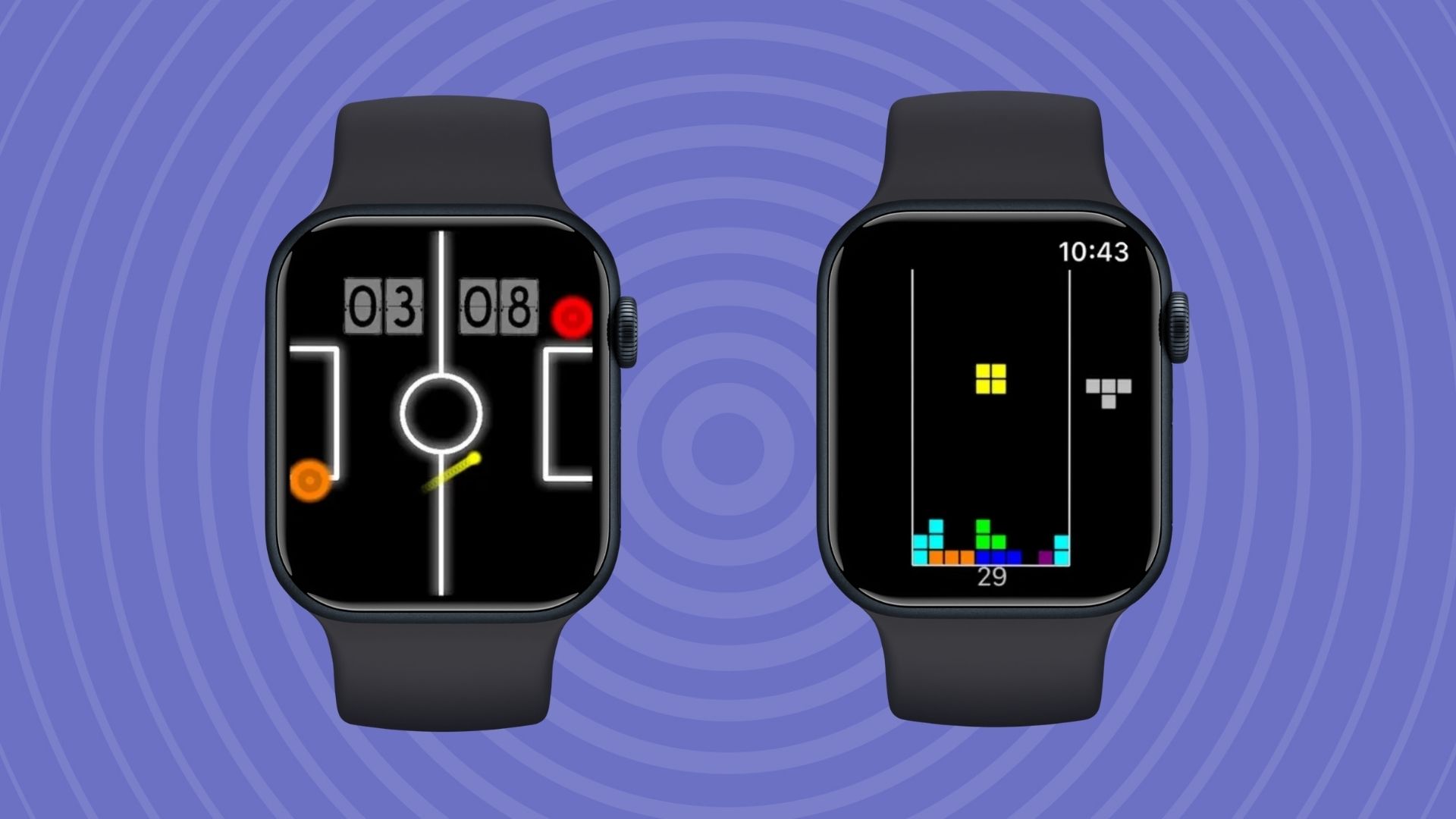
Ping Pong is a tiny retro wrist version of the immortal Pong title, with 12 different classic game modes and control powered by the Digital Crown. Unlockable game modes and difficulties keep you coming back for more, and it even boasts local multiplayer so that you can battle a friend on your companion iPhone.
Download from App Store (Free)
You might also like

Stephen Warwick is TechRadar's Fitness & Wearables writer with nearly a decade of experience covering technology, including five years as the News Editor of iMore. He's a keen fitness enthusiast and is never far from the local gym, Apple Watch at the ready, to record his latest workout. Stephen has experience writing about every facet of technology including products, services, hardware, and software. He's covered breaking news and developing stories regarding supply chains, patents and litigation, competition, politics and lobbying, the environment, and more. He's conducted interviews with industry experts in a range of fields including finance, litigation, security, and more. Outside of work, he's a massive tech and history buff with a passion for Rome Total War, reading, and music.
You must confirm your public display name before commenting
Please logout and then login again, you will then be prompted to enter your display name.